Department of Computer Science and Engineering
About the Department
The department has ambient research groups well equipped with prior knowledge to leading innovative work group in frontier areas of research.
Vision and Mission
Vision
To develop a knowledge hub for Computer Science Engineers and Technocrats in application of their competence for the betterment of the Individual, Industry and Society.
Mission
- To nurture the students to be industry- ready by providing a strong conceptual foundation and by enhancing their employability and entrepreneurial skills.
- To provide holistic growth by conducting relevant enrichment programs, which includes curricular, co-curricular, extracurricular and extension activities.
- To inculcate innovation and creativity through practically viable Internships and Project works.
- To create research oriented mindset and focus in fulfilling growing demands of the society through mentoring and lifelong learning.
List of Programmes
- Ph.D
- M.E CSE
- B.E CSE
- B.Tech IT
Faculty-Student Ratio: 1: 15
Programme Outcomes
PROGRAM OUTCOME (PO)
PO1: Independently carry out research /investigation and development work to solve
practical problems.
PO2: Write and present a substantial technical report/document.
PO3: Demonstrate a degree of mastery over the Computer Science and Engineering curriculum at a level higher than the requirements in the appropriate bachelor programme.
PO4: Apply mathematical foundations, algorithms and computer science principles in modelling and designing computer systems.
PO5: Apply computer science tools and techniques to solve different classes of engineering problems following ethical practices.
PO6: Recognize the need for, and have the preparation and ability to engage in independent and lifelong learning in the broadest context of technological change.
Programme Educational Objectives (PEOs)
PROGRAMME EDUCATIONAL OBJECTIVES (PEOs)
PEO1: To adopt systematic approach to design, develop, implement and innovate integrated systems that include people, technology, information and resources.
PEO2: To apply principles and practices in information technology to solve multiple real world problems.
PEO3: To become Entrepreneurs or Employees of reputed Organizations or pursue Higher Education for better adaptability.
PEO4: To accomplish any tasks with ethical values and commitment to meet the Social needs.
Programme Outcomes (POs) & Programme Specific Outcomes(PSOs)
PROGRAM OUTCOME (PO)
PO1: Engineering knowledge: Apply the knowledge of mathematics, science, engineering fundamentals, and an engineering specialization to the solution of complex engineering problems.
PO2: Problem analysis: Identify, formulate, research literature, and analyze complex engineering problems reaching substantiated conclusions using first principles of mathematics, natural sciences, and engineering sciences.
PO3: Design/development of solutions: Design solutions for complex engineering problems and design system components or processes that meet the specified needs with appropriate consideration for the public health and safety, and the cultural, societal, and environmental considerations.
PO4: Conduct investigations of complex problems: Use research-based knowledge and research methods including design of experiments, analysis and interpretation of data, and synthesis of the information to provide valid conclusions.
PO5: Modern tool usage: Create, select, and apply appropriate techniques, resources, and modern engineering and IT tools including prediction and modeling to complex engineering activities with an understanding of the limitations.
PO6: The engineer and society: Apply reasoning informed by the contextual knowledge to assess societal, health, safety, legal and cultural issues and the consequent responsibilities relevant to the professional engineering practice.
PO7: Environment and sustainability: Understand the impact of the professional engineering solutions in societal and environmental contexts, and demonstrate the knowledge of, and need for sustainable development.
PO8: Ethics: Apply ethical principles and commit to professional ethics and responsibilities and norms of the engineering practice.
PO9: Individual and team work: Function effectively as an individual, and as a member or leader in diverse teams, and in multidisciplinary settings.
PO10: Communication: Communicate effectively on complex engineering activities with the engineering community and with society at large, such as, being able to comprehend and write effective reports and design documentation, make effective presentations, and give and receive clearinstructions.
PO11: Project management and finance: Demonstrate knowledge and understanding of the engineering and management principles and apply these to one’s own work, as a member and leader in a team, to manage projects and in multidisciplinary environments.
PO12: Life-long learning: Recognize the need for, and have the preparation and ability to engage in independent and life-long learning in the broadest context of technological change.
PROGRAMME SPECIFIC OUTCOMES (PSOs)
PSO1: An expert with an aptitude and competence to analyze, design, model, develop, test and manage information systems to offer customized solutions.
PSO2: A professional with learning abilities to face upcoming challenges in the field of Information Technology.
Curriculum & Syllabus
CURRICULUM & SYLLABUS
MINIMUM CREDITS TO BE EARNED: 134
| Category | Course | Hours/Week | Credits | Maximum Marks | ||||
|---|---|---|---|---|---|---|---|---|
| Lecture | Tutorial | Practical | CA | SEE | Total | |||
| Program Core | Mathematics and Statistics for Computer Science | 3 | 1 | 0 | 4 | 40 | 60 | 100 |
| Program Core | Advanced Data Structures and Algorithms | 3 | 1 | 0 | 4 | 40 | 60 | 100 |
| Program Elective | Program Elective – I | 3 | 1 | 0 | 4 | 40 | 60 | 100 |
| Program Elective | Program Elective - II | 3 | 1 | 0 | 4 | 40 | 60 | 100 |
| Program Core | Advanced Data Structures and Algorithms Lab | 0 | 0 | 4 | 2 | 40 | 60 | 100 |
| Program Core | Advanced Database Management System Laboratory | 0 | 0 | 4 | 2 | 40 | 60 | 100 |
| Mandatory courses | Research Methodology and IPR | 2 | 0 | 0 | 2 | 40 | 60 | 100 |
| Audit Course | Audit Course – 1 | 0 | 0 | 0 | 0 | 40 | 60 | 100 |
| Total | 14 | 4 | 8 | 22 |
Curriculum & Syllabus
CURRICULUM & SYLLABUS
MINIMUM CREDITS TO BE EARNED: 170
| Category | Course Title | Lecture | Tutorial | Practical | Credits | CA | SEE | Total |
|---|---|---|---|---|---|---|---|---|
| SEMESTER 1 | ||||||||
| BSC | Engineering Chemistry | 3 | - | - | 3 | 40 | 60 | 100 |
| BSC | Mathematics I(Calculus and Linear Algebra) | 3 | 1 | - | 4 | 40 | 60 | 100 |
| ESC | Programming for Problem Solving | 3 | - | - | 3 | 40 | 60 | 100 |
| ESC | Basics of Civil and Mechanical Engineering | 3 | - | - | 3 | 40 | 60 | 100 |
| ESC | Workshop and Manufacturing Practices | 1 | - | 4 | 3 | 40 | 60 | 100 |
| BSC | Chemistry Laboratory | - | - | 2 | 1 | 40 | 60 | 100 |
| ESC | Programming for Problem Solving Laboratory | - | - | 2 | 1 | 40 | 60 | 100 |
| MC | Student Induction Program | - | - | - | - | - | - | - |
| MC | Universal Human Values | 2 | - | - | - | 100 | ||
| 15 | 1 | 8 | 18 | |||||
Eligibility Criteria
| Program | Criteria for MeritProgram Duration (Year) | Eligibility | Criteria for Merit |
|---|---|---|---|
| M.Tech Computer Science and Engineering | 2 Years (4 Semesters) | "Passed Bachelor’s Degree or equivalent in the relevant field. Obtained at least 50% marks (45% marks in case of candidates belonging to reserved category) in the qualifying examination." | Merit based on GATE/ TANCET/ Vels Entrance Examination and percentage of mark secured in the qualifying examination |
Eligibility Criteria
| Program | Program Duration (Year) | Eligibility | Criteria for Merit |
|---|---|---|---|
| B.Tech Computer Science and Engineering | "4 Years (8 Semesters)" | "First Year: Passed 10+2 examination with Physics/ Mathematics/ Chemistry/ Computer Science/ Electronics/ Information Technology/ Biology/ Informatics Practices/ Biotechnology/ Technical Vocational subject/ Agriculture/ Engineering Graphics/ Business Studies/ Entrepreneurship as per table 8.4 Agriculture stream (for Agriculture Engineering) Obtained at least 45% marks (40% marks in case of candidates belonging to reserved category) in the above subjects taken together. OR Passed D.Voc. Stream in the same or allied sector. (The Universities will offer suitable bridge courses such as Mathematics, Physics, Engineering drawing, etc., for the students coming from diverse backgrounds to prepare Level playing field and desired learning outcomes of the programme) Lateral Entry (to Second Year) Passed Minimum THREE years / TWO years (Lateral Entry) Diploma examination with at least 45% marks (40% marks in case of candidates belonging to reserved category) in ANY branch of Engineering and Technology. OR Passed B.Sc. Degree from a recognized University as defined by UGC, with at least 45% marks (40% marks in case of candidates belonging to reserved category) and passed 10+2 examination with Mathematics as a subject. OR Passed B.Voc/3-year D.Voc. Stream in the same or allied sector. (The Universities will offer suitable bridge courses such as Mathematics, Physics, Engineering drawing, etc., for the students coming from diverse backgrounds to achieve desired learning outcomes of the programme)" | " Merit based on Vels Entrance Examination and percentage of mark secured in the qualifying examination |
Career Prospects
CAREER PROSPECTS
- Software developer
- Computer network architect
- System administrator
- Database administrator
- Computer and information systems manager
- Computer and information systems analyst
- Information security analyst
- Application Development
- Business Systems Analyst
- CGI Special Effects Technician
- Client-Server Systems Manager
- Computing Hardware Systems Director
- Data Analyst
- Data Processing Departmental
- Manager
- Database Administrator
- Database Manager
- Desktop Support Engineer
- Director of IT
- Disaster Recovery Planners
- Embedded software
- Enterprise Architect
- Game Developer
- Hardware Designer
- Healthcare Software
- Hosting Service Management
- Lead Mobile Phone Application
- Researcher
Career Prospects
CAREER PROSPECTS
- Machine Learning Engineer
- R&D Engineer
- System Analyst
- System Engineer
- Programming architect
- Full Stack Developer / Front end Developer / Back end Developer
- Software developer
- Computer network architect
- System administrator
- Database administrator
- Data Analyst
- Game Developer
Alumni Testimonials

It was a great experience being a student at Vels University. We had good experienced Faculties who are well updated they have provided great guidance towards syllabus also booming technologies around the world. Wonderful experience altogether.
Punithavalli.V (M.E. CSE), 2017 -2019
Senior Analyst HCL technologies

My 2 years at VELS have been an excellent and a life time memory. It was full of fun and frolic. All faculty here are highly skilled and having a great helping nature to bring up the knowledge .VELS is always a platform for practical learning and technical expertise. Thank you for everything.
Gopala Varma P (M.E. CSE), 2016-2018
Tata Consultancy Services Technical Lead.
Alumni Testimonials

You can always see a smile when the people talk about the nostalgic memories at their College. I joined VISTAS as a kid with the big Engineering dream. The dedicated faculties and the curriculum made my dream come to a reality. Today I work at a Reputed IT Giant with the knowledge and skills that I acquired from my University. I would always wish to come back to my university for more.
Mr.ArunKumar Muralitharan (B.E. Computer Science Engineering), 2011 -15
Senior Test Engineer
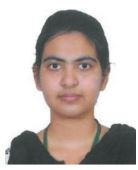
Vels University is a platform that can empower the hidden qualities of a student, where one can find various opportunities to explore its talents and soft skills in fields of academics, culture and more. I feel proud to be a part of it.”
Ms. Rajendrani Bose (B.E. Computer Science Engineering),2013-2017
Assistant Software Engineer
Fee Structure
| Tuition Fee 2024 - 2025 (Per Sem) | Other Fee (Per Sem) | Total Fee 2024 - 2025 (Per Sem) |
|---|---|---|
| 30,000 | 19,000 | 49,000 |
Major Research Areas
Major Research Areas
- Artificial Intelligence & Machine Learning
- Data Science and Analytics
- Computer Networks and Systems
- Distributed Systems and Cloud Computing
- Database and Information Systems
- Security and Cryptography
- Internet of Things
- Deep Learning
- Image Processing
- Big Data Analytics
- Distributed Computing
- Quantum Computing
- Natural Language Processing
- Virtualization
- Theoretical Computer Science
- Game Theory
- Generative Artificial Intelligence
- Cognitive Neuroscience
Sponsored Research/Consultancy
| S.No | Name of the Faculty | Project Title | Research / Consultancy | Funding Agency | Grant Received | Duration and Status |
|---|---|---|---|---|---|---|
| 1 | Dr.M.Chandrasekaran, Dr.S.Arun | STI Hub for Technology enabled Production and Marketing of Value-added Agricultural products to enhance the livelihood of SC Community in Thellar Block | Research Project | DST-SEED | 26613618 | 3 |
| 2 | Dr. R. Anandan | Wearable technology interfaced Smart Stress Detector Module | Research Project | EDII | 200000 | 1 |
| 3 | Dr. R. Anandan | Reconnaissance of geospatial mapping to navigate Person in multipath indoor environment using Augmented reality in Airport | Research Project | MSME | 1700000 | 1 |
| 4 | Dr.R.Anandan, Dr. K. Kalaivani | IOT based Intelligent Networking System for tracked vehicles | Research Project | AICTERPS | 1025666 | 3 |
Fee Structure
| Tuition Fee 2024 - 2025 (Per Sem) | Other Fee (Per Sem) | Total Fee 2024 - 2025 (Per Sem) |
|---|---|---|
| 58,000 | 41,000 | 99,000 |
Professional Activities
List of Events Organized by the Department From 2020 – Present
Faculty of the Department
| S.No | NAME OF THE FACULTY | DESIGNATION | EDUCATIONAL QUALIFICATION | AREA OF SPECIALIZATION | EXPERIENCE IN YEARS | Vidwan ID | PHOTO |
|---|---|---|---|---|---|---|---|
| 1 | Dr.S.Arun | Professor & Director (IQAC) | M.E., Ph.D | Artificial intelligence, Human computer interaction, Vision System, Biosignal Processing | 18 | 258568 | 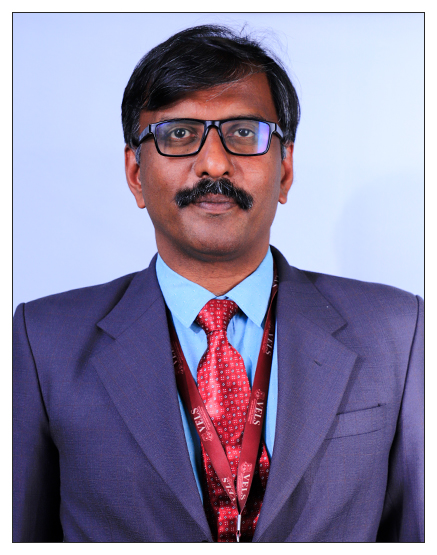 |
| 2 | Dr.K.Kalaivani | Associate Professor & Head | M.E., Ph.D | Image Processing, Data Analytics, Artificial Intelligence | 17 | 233987 | 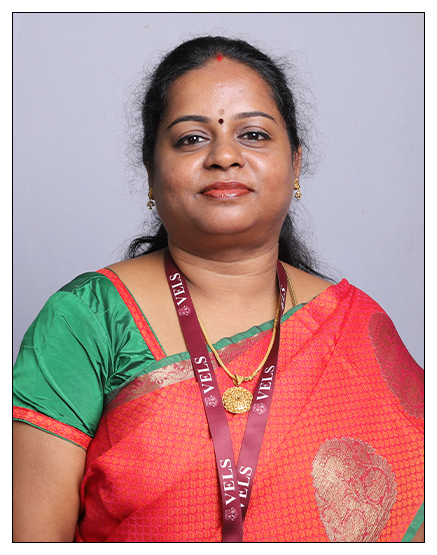 |
| 3 | Dr. R.Anandan | Professor | M.E., Ph.D | Quantum Computing, Regenerative AI, AR- VR, Metaverse , Human Computer Interaction, Edge Computing, Computer Vision, Natural Language Processing, High Performance Computing | 23 | 84899 | 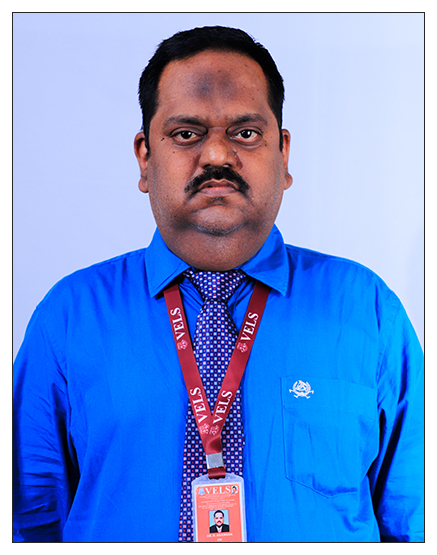 |
| 4 | Dr. N. Kumar | Professor | M.Tech., Ph.D | Computer Networks, Mobile and Wireless Ad hoc Networks, Software Defined Networks, Cloud Computing, IoT, Image Processing, AI & Machine Learning, Data Science | 18 | 232473 | 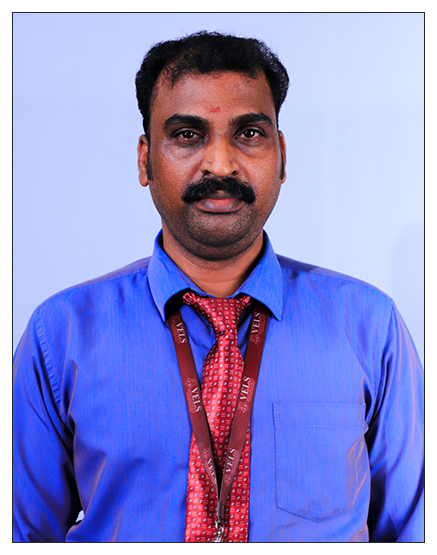 |
| 5 | Dr.A.Rajesh | Professor | M.Tech., Ph.D | Network Security | 16.8 | 232499 | 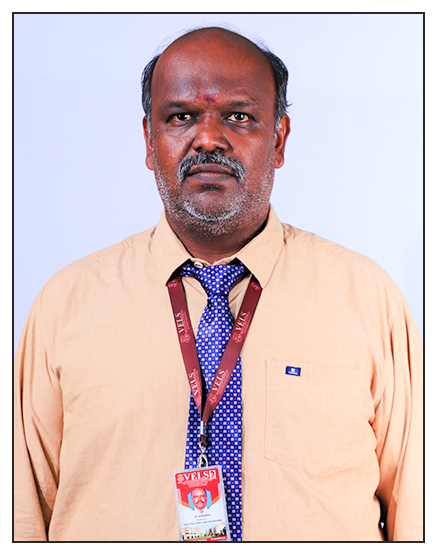 |
| 6 | Dr.A.Packialatha | Associate Professor | M.E., Ph.D | Pattern Recognition,Cloud Computing,Knowledge Engineering,Neural Networks, Big Data Analytics,Deep learning | 21 | 253610 | 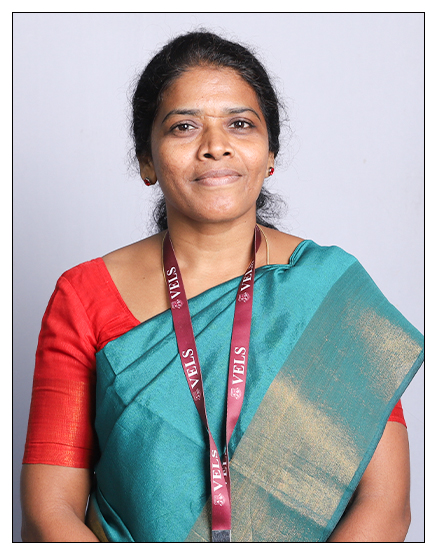 |
| 7 | Dr.S.Meera | Associate Professor | M.E., Ph.D | Big data, image processing, computer networks, cloud computing, IoT | 23 | 315114 | 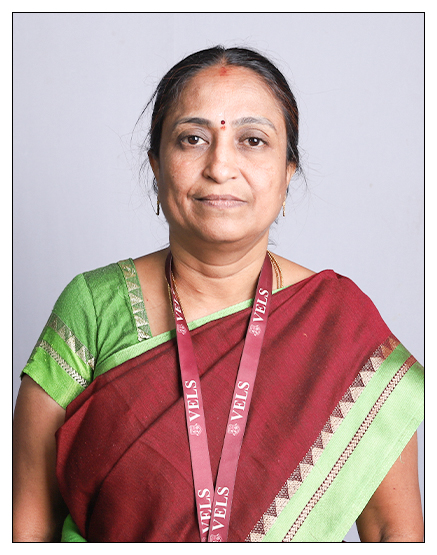 |
| 8 | Dr.K.UlagaPriya | Associate Professor | M.E., Ph.D | Machine learning, data science, software Engineering | 22 | 232452 | 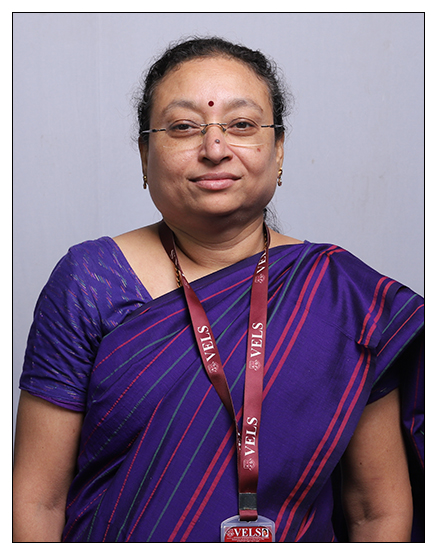 |
| 9 | Dr.S.Sridevi | Associate Professor | M.E., Ph.D | Computer Networks,Wireless Sensor Networks, Artificial Intelligence,Machine Learning, Deep Learning, Data Science, Computer Vision,Network Security,Cyber Security,IoT | 15.8 | 234016 | 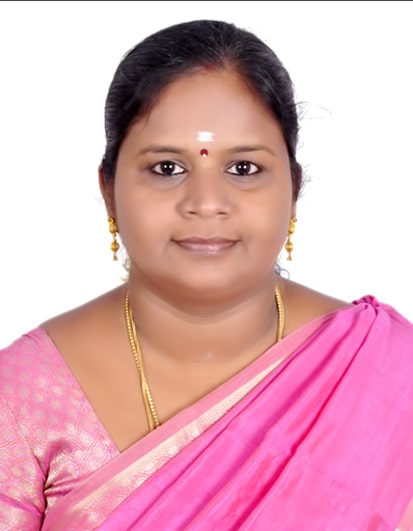 |
| 10 | Dr.A.Manikandan | Assistant Professor | M.E., Ph.D | Computer Networks, Cloud Computing, IoT, Image Processing, AI & Machine Learning, Data Science | 10.5 | 234022 | 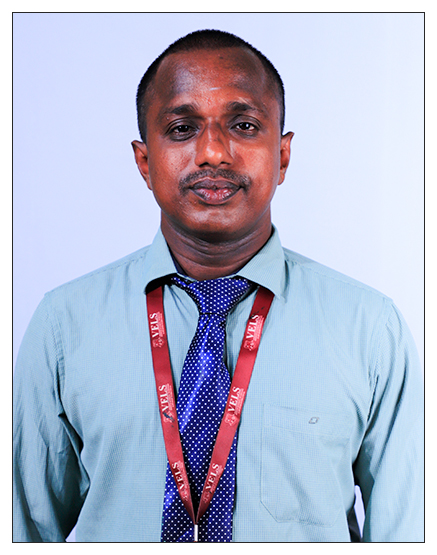 |
| 11 | Dr.C.Swaraj Paul | Assistant Professor | M.E., Ph.D | Data Mining, Image Processing, IoT, Cloud Computing, sensors | 10 | 485613 |  |
| 12 | Dr.P.SheelaGowr | Assistant Professor | M.E., Ph.D | Image Processing, Cloud Computing, IoT, AI & Machine Learning, Data Science | 13.9 | 234045 | 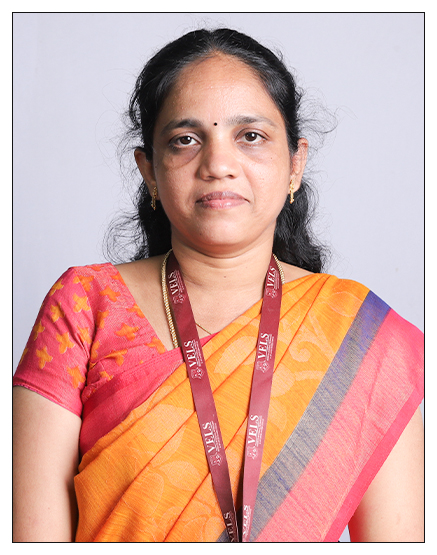 |
| 13 | Dr.Banushri.A | Assistant Professor | M.Tech., Ph.D | Cloud Computing, Blockchain Technology, Computer Networks, Network Security | 13 | 237876 | 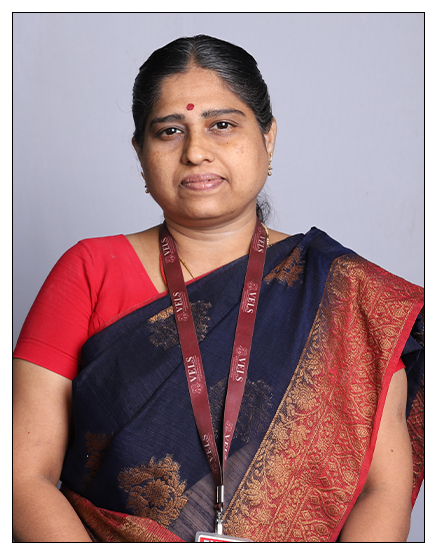 |
| 14 | Dr. S.Thirumal | Assistant Professor | M.E., Ph.D | Computer Networks, Cloud Computing, IoT, Image Processing, AI & Machine Learning, Data Science | 11.5 | 32474 | 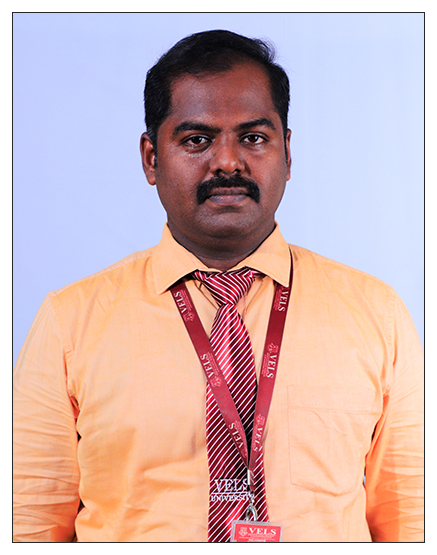 |
| 15 | Dr.P.Thilakavathy | Assistant Professor | M.E., Ph.D | Image processing, machine learning, IoT | 9 | 470493 | 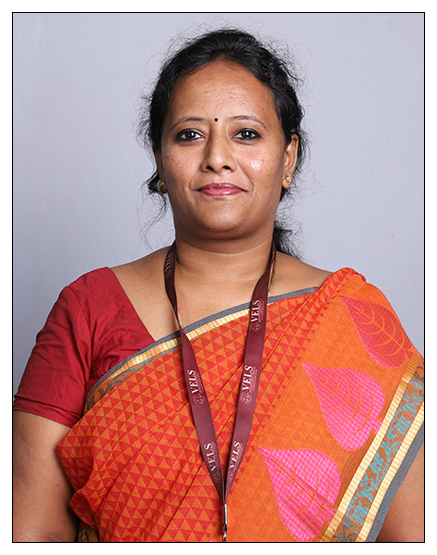 |
| 16 | Dr. G. Revathy | Assistant Professor | M.E., Ph.D. | Cybersecurity, Machine Learning, Deep learning, NLP | 5 | 475353 | 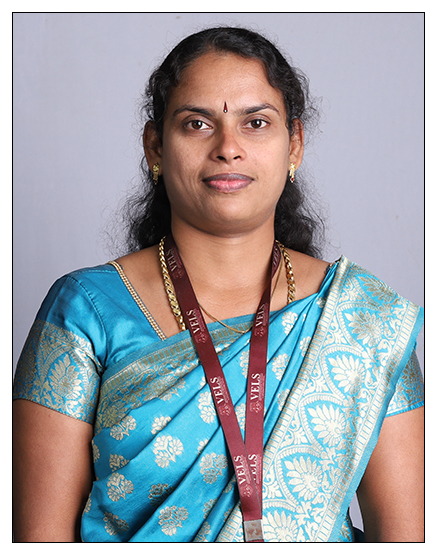 |
| 17 | Dr. A.Saritha | Assistant Professor | M.E., Ph.D. | Computer networks,cloud computing,Mobile Ad hoc networks,Machine learning | 13 | 233992 | 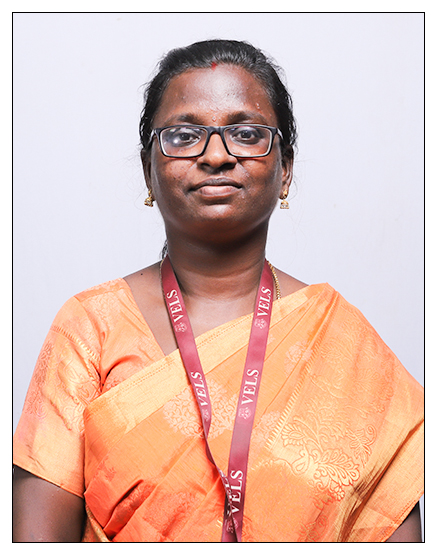 |
| 18 | Ms.Parvathavarthini.K | Assistant Professor | M.E., (Ph.D) | Image Processing, Computer Networks, Deep Learning | 9.6 | 232483 | 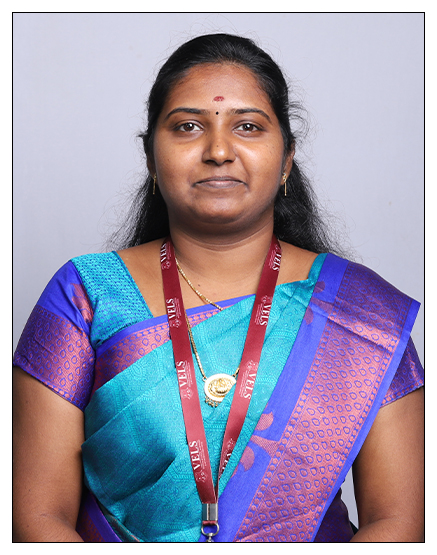 |
| 19 | Mr.C.Darwin | Assistant Professor | M.Tech | Grid Computing, Computer Networks, WSN, Cloud Computing | 9 | 495008 |  |
| 20 | Mr M.Franklin Singh | Assistant Professor | M.E. | Computer Networks, Embedded Systems, Sensors | 5 | 495002 |  |
| 21 | Mr Jegan Thomas | Assistant Professor | M.E. | Data Communication, Web Analytics, Digital Marketing | 5 | 495006 |  |
| 22 | Mr.K.Kalaiyamuthan | Assistant Professor | M.E. | Web Development | 11.7 | 487389 |  |
| 23 | Mrs.R.Deepa | Assistant Professor | M.E., (Ph.D) | Deep Learning /Machine Learning, Data Analytics | 9 | 253738 | 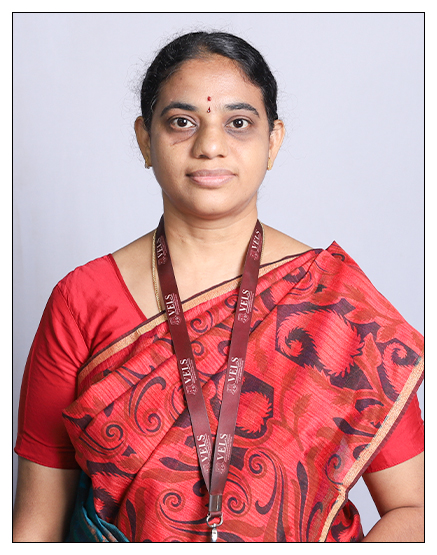 |
| 24 | Mrs.S.Vijitha | Assistant Professor | M.E., (Ph.D) | Block Chain Technology, Networks,Big Data security, Machine learning | 6 | 253591 | 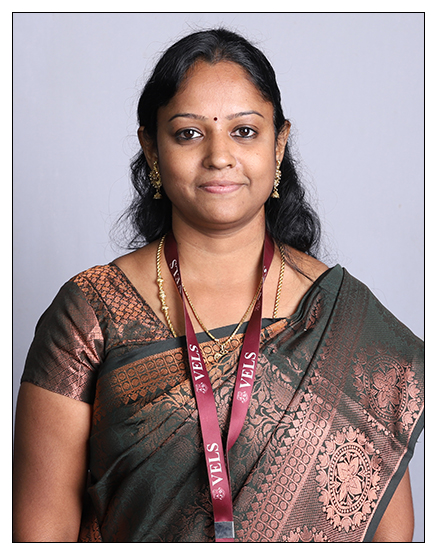 |
| 25 | Mrs.S.Sethu | Assistant Professor | M.E., (Ph.D) | Computer Networks,Network Security, Deep learning | 5 | 469629 | 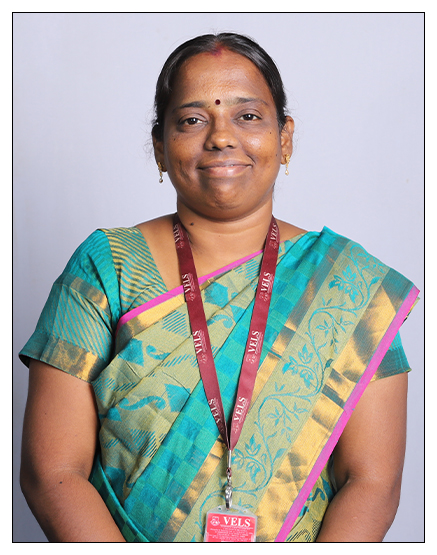 |
| 26 | Ms.Pavithra Jagadesan | Assistant Professor | M.E., (Ph.D) | Cyber security, machine learning | 3 | 475337 | 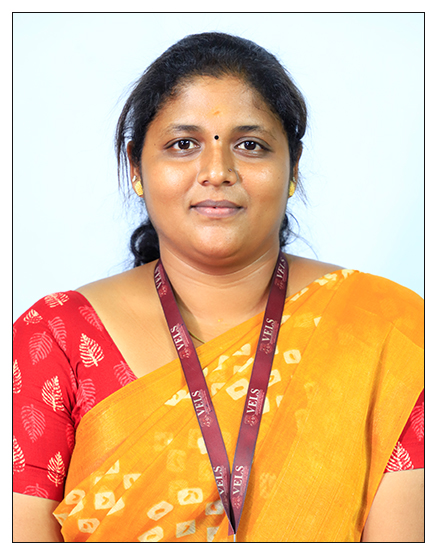 |
| 27 | Mrs. P. Mohana priya | Assistant Professor | M.E., (Ph.D) | Deep Learning, Machine learning,Image processing | 3 | 484305 | 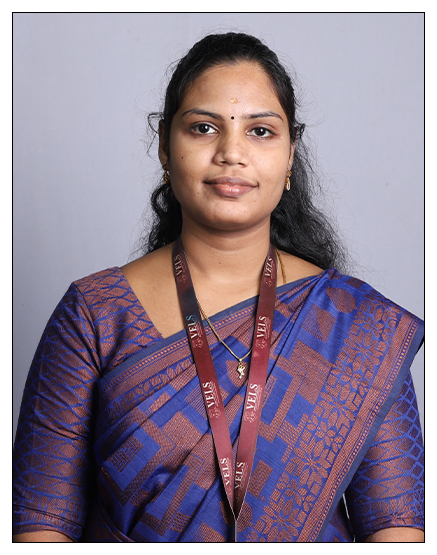 |
| 28 | Mrs.M.Subbulakshmi | Assistant Professor | M.Tech. | Image Processing, Computer Networks. | 2 | 487404 |  |
| 29 | Mrs.M.Bhanumathi | Assistant Professor | M.E., (Ph.D) | Deep Learning, Machine Learning | 17 | 315834 | 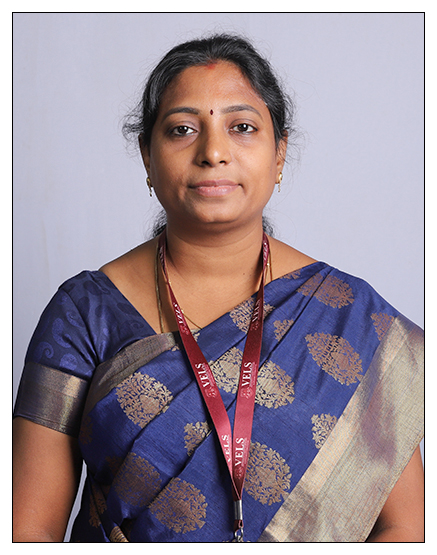 |
| 30 | Mr.N.Udayakumar | Assistant Professor | M.E., (Ph.D) | Computer Networks, Network Security, Cyber Security, Malware Anaysis | 8.6 | 468408 | 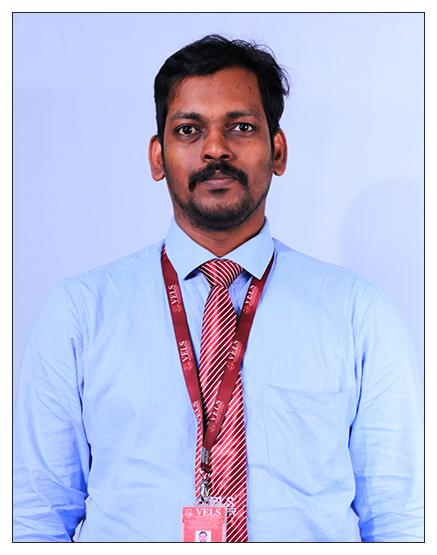 |
| 31 | Mrs.P.V.Hemavathy | Assistant Professor | M.E., (Ph.D) | Deep Learning, Medical Image Processing | 8.5 | 464234 | 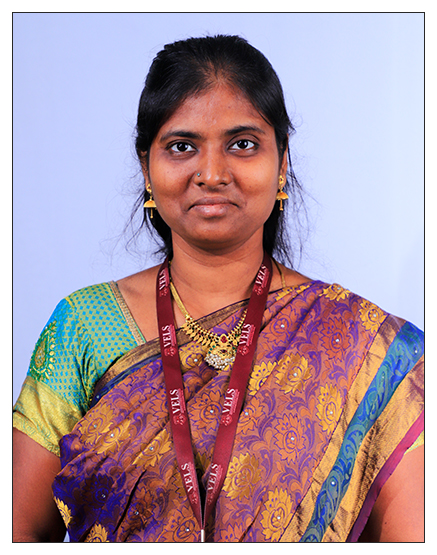 |
| 32 | Mrs.S.M.Sowmiya | Assistant Professor | M.E., (Ph.D) | Artificial Intelligence, Cloud Computing | 7.5 | 469822 | 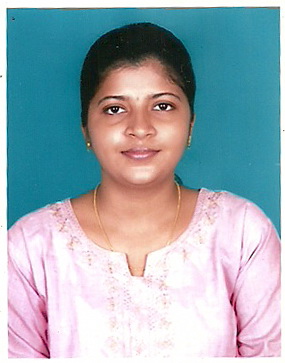 |
| 33 | Mrs.S.J.Kavitha | Assistant Professor | M.E., (Ph.D) | Cloud Computing, IoT, Deep Learning | 3.7 | 469822 | 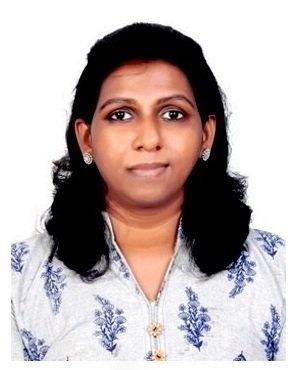 |
| 34 | Dr.S.Varshavardhini | Assistant Professor | M.E., Ph.D | Big Data, Data Mining , Machine Learning | 0.6 | 467731 | 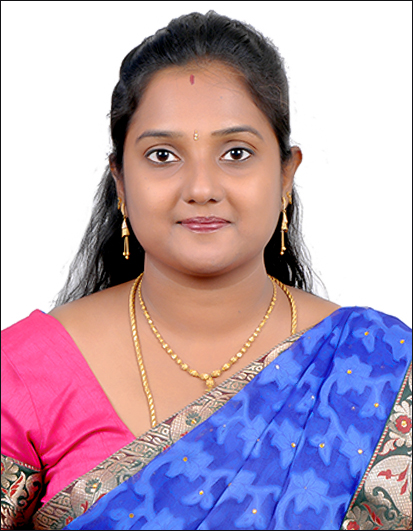 |
| 35 | Mrs.S.Saranya | Assistant Professor | M.E | Computer networks | 0.7 | 467688 | 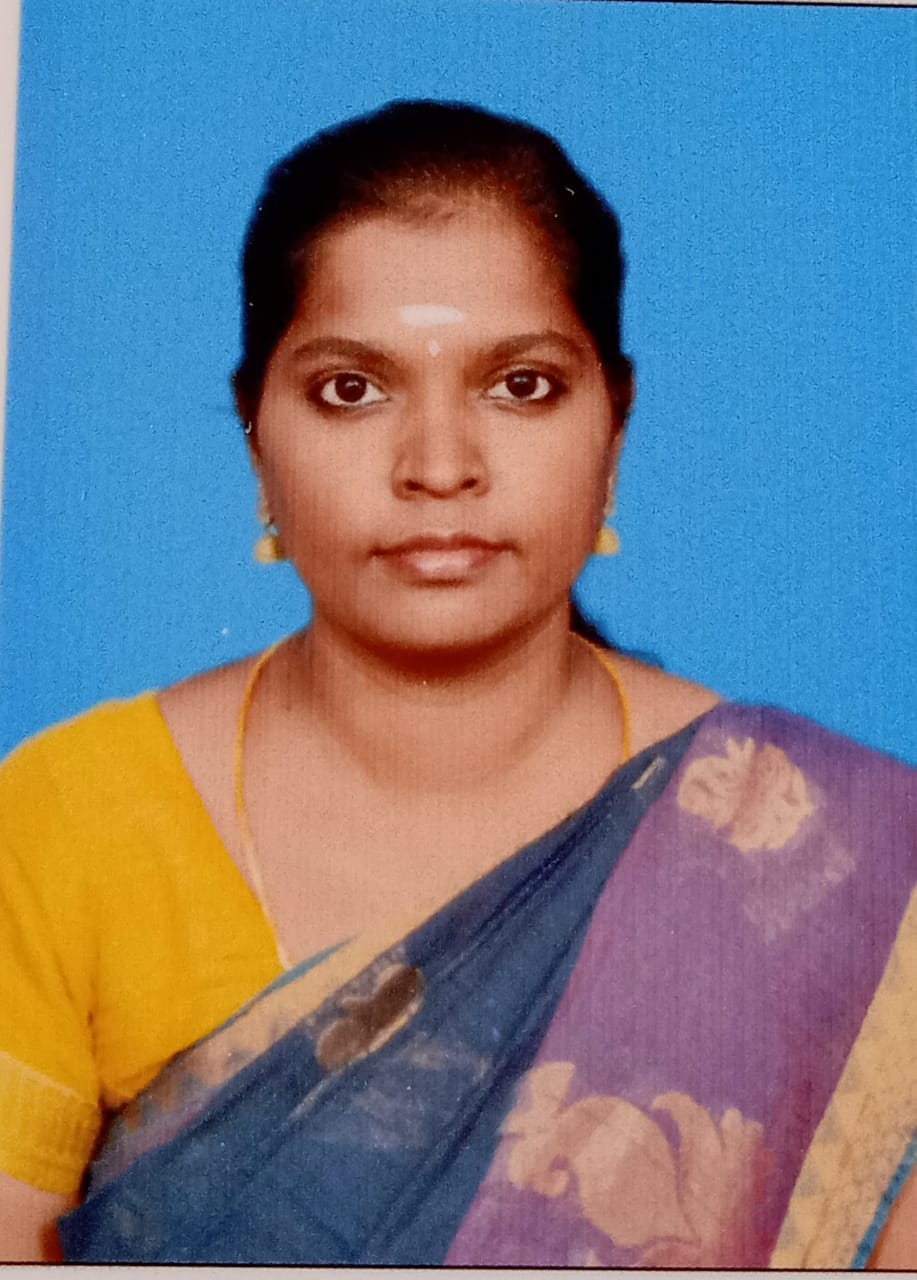 |
| 36 | Mrs.S.Divya Bairavi | Assistant Professor | M.E | Artificial intelligence and machine learning | 7 | 468931 | 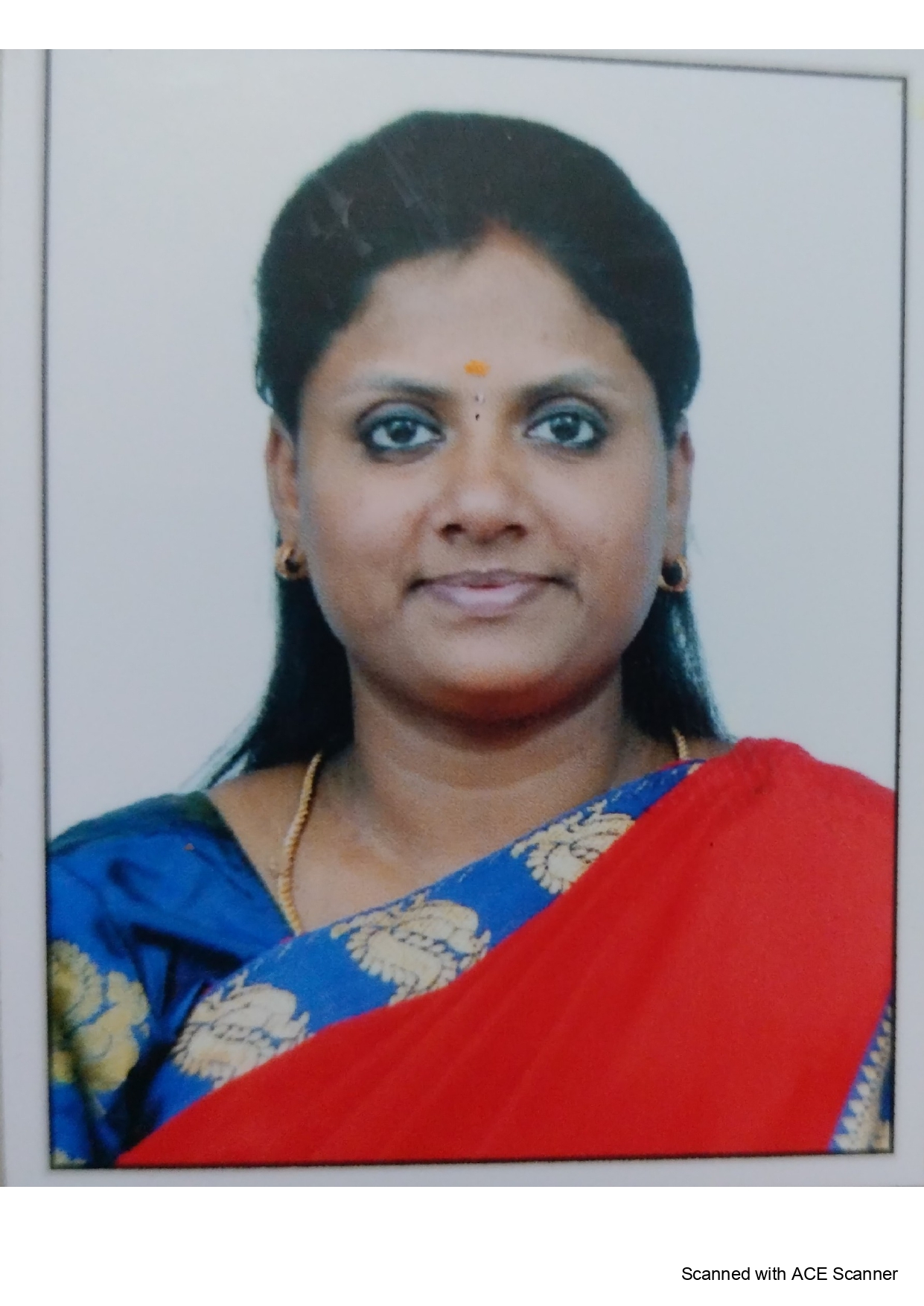 |
| 37 | Mrs.R.Kalpana | Assistant Professor | M.E., (Ph.D) | Blockchain technology , Cryptography, Networks | 16 | 467969 | 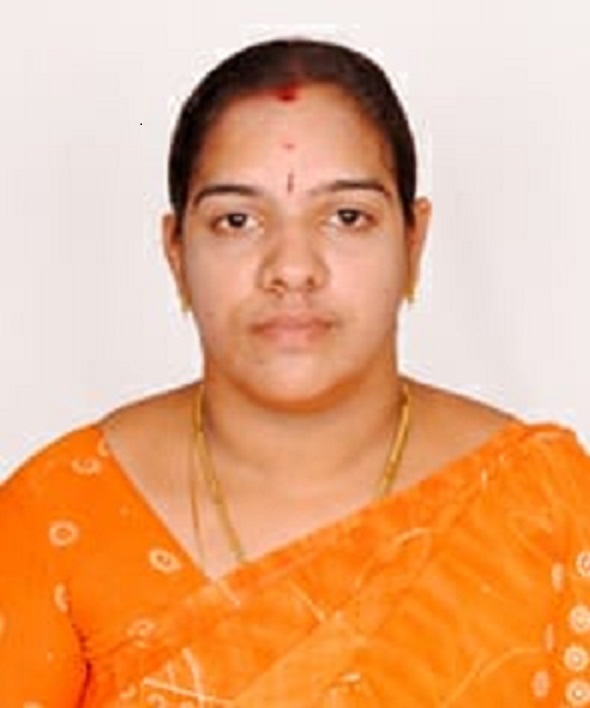 |
| 38 | Mrs.N.Kavitha | Assistant Professor | M.E., (Ph.D) | Deep Learning, Medical Image Processing | 1.8 | 279169 | 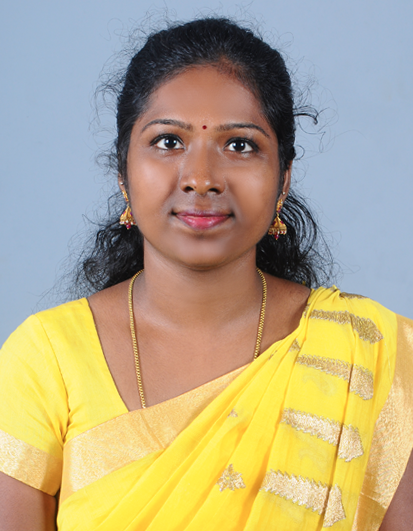 |
| 39 | Mrs V.Bharathi | Assistant Professor | M.E | Image processing, Network security, artificial intelligence and machine learning | 10.5 | 468960 | 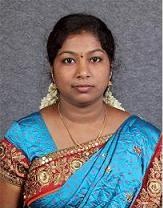 |
| 40 | Dr.KennethSundaraj (Adjunt) | Professor | M.E., Ph.D. | Image Processing, Networks. | - | - | |
| 41 | Mr.SanjeevArumugam (Adjunt) | Assistant Professor | M.E. | Internet of Things | - | - | |
| 42 | Dr.RM.Manikandan (Adjunt) | Associate Professor | M.E., Ph.D. | Computer Networks | - | - | |
| 43 | Mr.Aswinkumar KC (Adjunt) | Assistant Professor | M.Tech. | Internet of Things | - | - | |
| 44 | Mr.Surya S K (Adjunt) | Assistant Professor | M.E. | Internet of Things | - | - |
M.Sc Computer Science
Programme Educational Objectives (PEOs)
PROGRAMME EDUCATIONAL OUTCOMES (PEO)
PEO1: Graduates are prepared to be employed in IT industries by providing expected Domain Knowledge.
PEO2: Graduates are provided with practical training, hands-on and project experience to meet the industrial needs.
PEO3: Graduates are motivated in career and entrepreneurial skill development to become global leaders.
PEO4: Graduates are trained to demonstrate creativity, develop innovative ideas and. to work in teams to accomplish a common goal.
PEO5: Graduates are addressed with social issues and guided to operate problems with Solution.
Programme Outcomes (POs) & Programme Specific Outcomes(PSOs)
PROGRAM OUTCOMES (PO)
PO 1: Domain Expertise: Communicate computer science concepts, designs, and solutions effectively and professionally.
PO 2: Computing Skills and Ethics: Apply knowledge of computing to produce effective designs and solutions for specific problems.
PO 3: Lifelong Learning and Research: Identify, analyze, and synthesize scholarly literature relating to the field of computer science.
PO 4: Modern Tool Usage: Use software development tools, software systems, and modern computing platforms.
PO 5: Social Contribution: An understanding of professional, ethical, legal, security and social issues and responsibilities
PO 6: Ethics: Capable of evaluating personal and professional choices in terms of codes of ethics and ethical theories and understanding the impact of their decisions on themselves, their professions, and on society
PO 7: Life Long Learning: Apply design and development principles in the construction of software systems of varying complexity.
PROGRAMME SPECIFIC OUTCOMES (PSO)
PSO 1: Professionally trained in the areas of programming, multimedia, animation, web designing, networking and to acquire knowledge in various domain-based electives.
PSO 2: Abet students to communicate effectively and to improve their competency skills to solve real time problems.
PSO 3: The ability to employ modern computer languages and applications for their successful career, to create platforms to become an entrepreneur and a relish for higher studies.
Curriculum & Syllabus
CURRICULUM & SYLLABUS
MINIMUM CREDITS TO BE EARNED: 90
| Category | Code No | Course | Hours/Week | Maximum Marks | |||||
|---|---|---|---|---|---|---|---|---|---|
| Lecture | Tutorial | Practical | Credits | CA | SEE | Total | |||
| Core | 21CMCS11 | Linux Programming | 4 | 0 | 0 | 4 | 40 | 60 | 100 |
| Core | 21CMCS12 | Design and Analysis of Algorithm | 4 | 0 | 0 | 4 | 40 | 60 | 100 |
| Core | 21CMCS13 | Scripting Language | 3 | 0 | 4 | 4 | 40 | 60 | 100 |
| Core | 21PMCS11 | Linux Programming Lab | 0 | 0 | 4 | 2 | 40 | 60 | 100 |
| DSE | 21DMCS-- | DSE 1 | 4 | 0 | 0 | 4 | 40 | 60 | 100 |
| DSE | 21DMCS-- | DSE 2 | 4 | 0 | 0 | 4 | 40 | 60 | 100 |
| SEC | Soft Skill1/ Sector Skill Course | 2 | 0 | 0 | 2 | 40 | 60 | 100 | |
| TOTAL | 21 | 0 | 8 | 24 |
Eligibility Criteria
| Program | Program Duration (Year) | Eligibility | Criteria for Merit |
|---|---|---|---|
| M.Sc Computer Science | 2 Years (4 Semesters) | Bachelor's degree in Computer Science/ Computer Science and Technology/ Artificial Intelligence and Machine Learning/ Cyber Security/ BCA degree/ Any othere degree accepted as equivalent thereto by the syndicate | Merit based on the percentage of marks secured in the qualifying examination |
Career Prospects
CAREER PROSPECTS
- Robotics Programmer
- Video Game Programmer
- Data Scientist
- Software Engineer
- Machine Learning Researcher
- Business Intelligence Developer
- Statistical Analyst
Alumni Testimonials
As a Senior Web Analyst & Digital Marketing Expert, my time at VISTAS has
been incredibly enriching, shaping both my personal and professional journey over
the past two years. The equal opportunities provided to all have served as a
cornerstone in my development, allowing me to hone my skills and pursue my
passions. None of this would have been possible without the unwavering support
and guidance of the faculty members who generously shared their knowledge and
experience. Their mentor ship played a pivotal role in sculpting my abilities and
nurturing my growth. Our university has provided us a very enhanced and efficient
platform for the exposure to the training and placement. It has truly been a turning
point in my life, equipping me with the confidence and skills needed to face the
challenges of the world beyond academia.
Mr. P. THIRUMURUGAN (M.Sc. Computer Science), 2012 -2014 Senior Web Analyst & Digital Marketing Expert Hexa Corp Pvt. Ltd, Chennai.
Reflecting on my time at VISTAS fills me with immense gratitude for the
invaluable role it played in my personal and professional development. The
inclusive ethos and equal opportunities fostered a sense of belonging and
empowerment, enabling me to flourish both academically and personally. I am
deeply indebted to the dedicated faculty whose unwavering support, mentorship,
and wealth of knowledge were instrumental in shaping my journey. Their guidance
not only equipped me with the requisite skills but also instilled in me the
confidence to navigate the complexities of the professional world. VISTAS will
always hold a special place in my heart, serving as a beacon of inspiration and
empowerment on my path to success.
Mr.Krishnakumar Parthasarathy (M.Sc. Computer Science) 2014 - 2016 Senior Software Engineer, Wipro Limited, Chennai.
Fee Structure
| Tuition Fee 2024 - 2025 (Per Sem) | Other Fee (Per Sem) | Total Fee 2024 - 2025 (Per Sem) |
|---|---|---|
| 21,000 | 18,000 | 39,000 |
Faculty of the Deapartment
| Sl. No. | Name of the Faculty | Designation | Educational Qualification | Area of Specialization | Experience in Years | Vidwan ID | Photos |
|---|---|---|---|---|---|---|---|
| 1 | Dr.Perumal.S | Professor and Head | M.Sc., M.Phil.,P.h.D | Image Processing, Data Analytics, Cloud Computing, IOT | 28 yrs | 263415 | 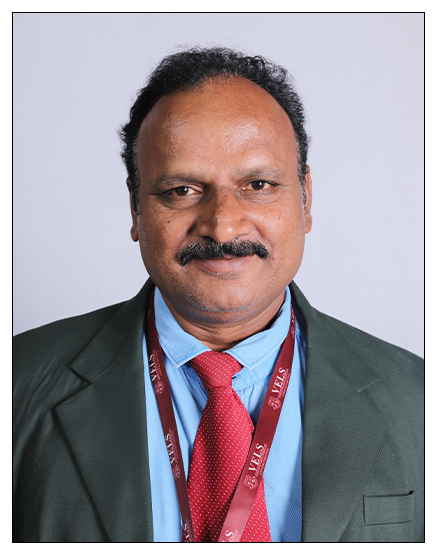 |
| 2 | Dr.Parameswari.R | Professor | MCA., M.Phil., Ph.D | Cloud Computing & Big Data Analytics | 17 years 11 months | 237318 | 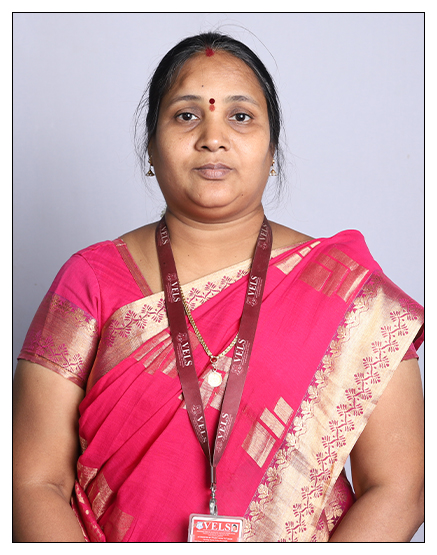 |
| 3 | Dr.Thailambal.G | Associate Professor | MCA., M.Phil., Ph.D | Data Mining, Text Mining, Pattern Matching & Machine Learning | 20 yrs | 232467 | 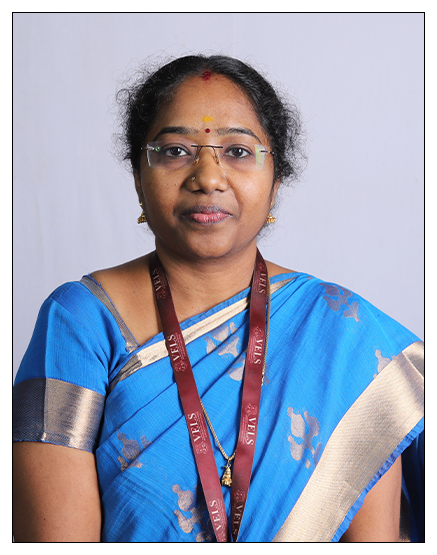 |
| 4 | Dr.Mangayarkarasi.S | Associate Professor | MCA., M.Phil.,Ph.D | Network Security, Image Processing, IOT & Networking | 19 yrs | 232465 | 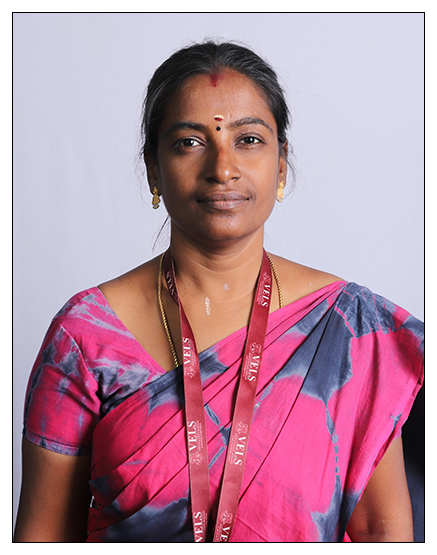 |
| 5 | Dr.Arunachalam.A.S | Associate Professor | MCA., M.Phil.,Ph.D | Data Mining, Image Processing and Networking, Data Science, Big Data | 20 yrs | 173795 | 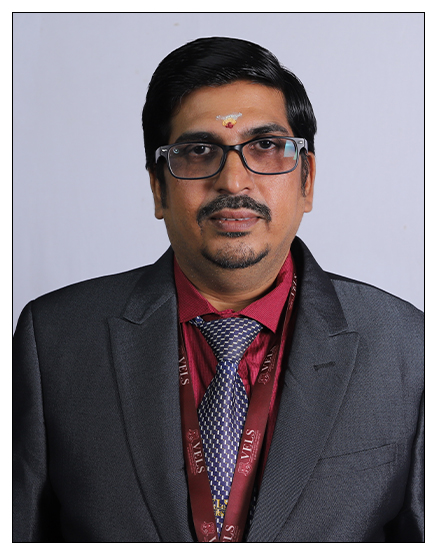 |
| 6 | Dr.Sreekala.T | Associate Professor | M.Sc., M.Phil., Ph.D,NET | Intrusion Detection System, Network Security, Machine Learning, Blockchain Technology | 18 years 4 months | 173689 | 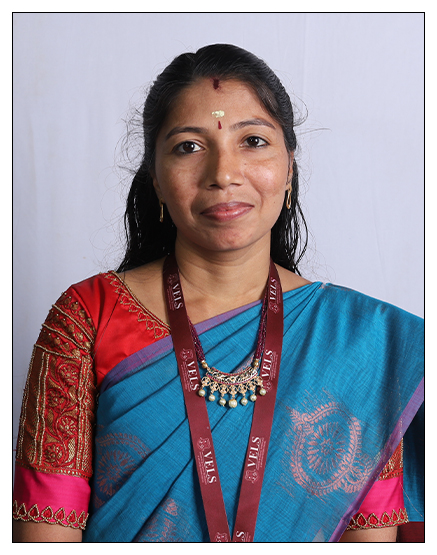 |
| 7 | Dr.Durga.R | Associate Professor | MCA,,M.Phil, Ph.D | Network Security, Wireless Sensor, Cloud Computing | 16 yrs | 173696 | 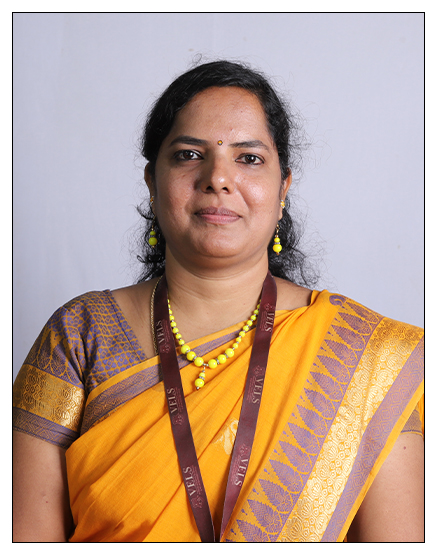 |
| 8 | Dr.Akila.A | Associate Professor | MCA.,M.Phil., Ph.D., | Speech Recognition & Signal Processing | 13 year 7 months | 183051 | 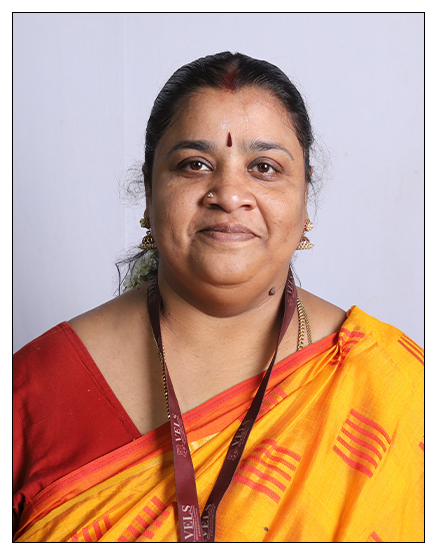 |
| 9 | Dr.Aneetha.A.S | Associate Professor | MCA, M.Phil, NET.,Ph.D | Intrusion and Detection System | 14 years 4 months | 469003 | 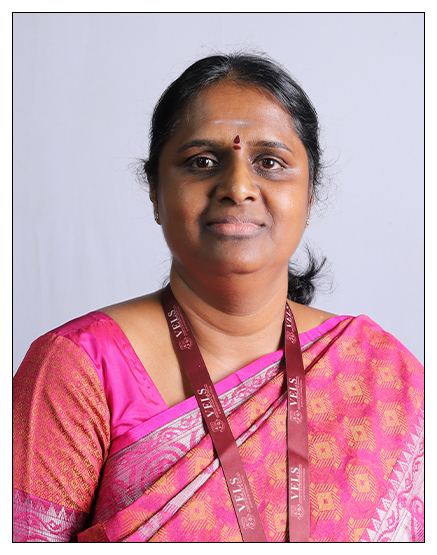 |
| 10 | Dr.V.Poornima | Associate Professor | M.Sc(CS),MCA, M.Phil,Ph.D | Machine Learning , ANN , IoT | 11 years8 months | 470632 | - |
| 11 | Mr.Balamurugan.R | Assistant Professor | MCA., M.Phil.,(Ph.D) | Data Mining | 22 years 5 months | 237146 | 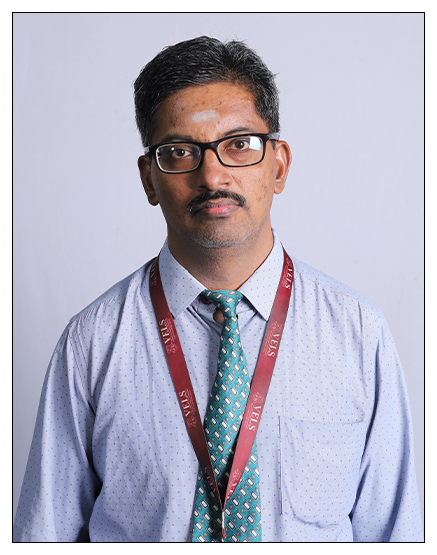 |
| 12 | Ms.Padma.R | Assistant Professor | M.Sc, M.Phil, SET, (Ph.D) | Big Data Analytics, Aritificial intelligence and Machine learning | 18 year | 236678 | 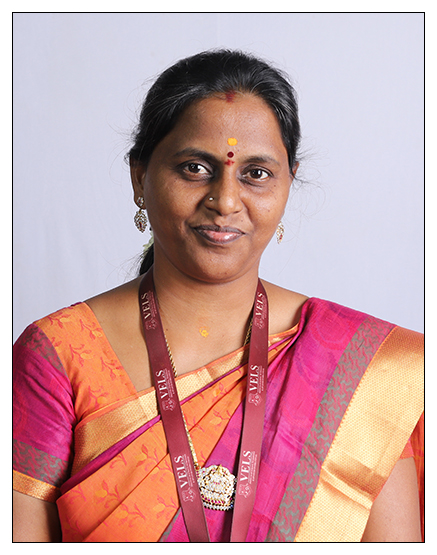 |
| 13 | Dr.Abirami.K | Assistant Professor | M.Sc,M.Phil,Ph.D | Web Mining | 8 years 6 months | 427668 |  |
| 14 | Dr.Thirunavukkarasu.K.S | Assistant Professor | M.Sc,M.Phil, Ph.D | Data Mining | 15 years 5 month | 291351 | 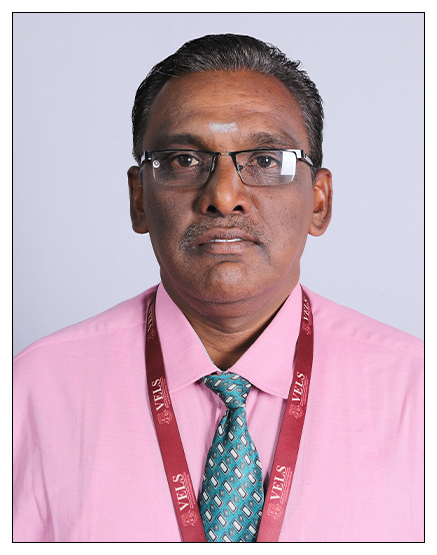 |
| 15 | Dr.Vishwa Priya.V | Assistant Professor | MCA, MBA,M.Phil,Ph.D | Big Data Analytics, Aritificial intelligence and Machine learning,IOT | 6 years 4 months | 405597 |  |
| 16 | Dr.Tamilselvi.P | Assistant Professor | MCA, M.Phil, Ph.D | Cloud Computing | 12 years | 470649 | 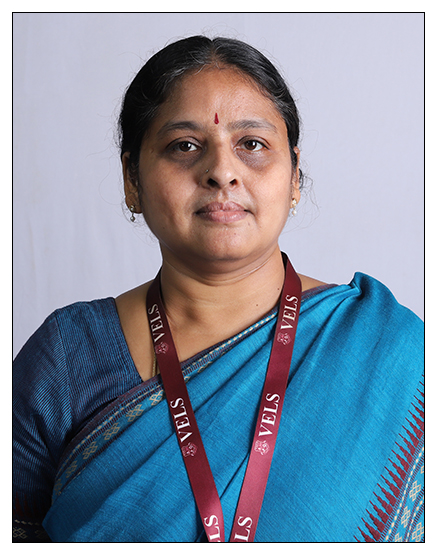 |
| 17 | Dr.Jose Reena.K | Assistant Professor | MCA, M.Phil,Ph.D | IoT, Big Data | 8 years 1 month | 425726 | - |
| 18 | Dr.Nisha Dayana.T.R | Assistant Professor | M.Sc,M.Phil,Ph.D | Image Mining | 11 years 2 months | 470653 | 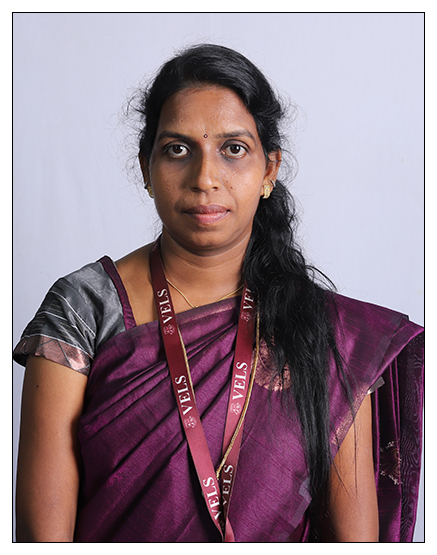 |
| 19 | Ms.K.Sreelatha | Assistant Professor | M.Sc CS &IT,M.Phil,(Ph.D) | Networking | 1 yr | 470792 | - |
B.com - LLB
Programme Educational Objectives (PEOs)
PROGRAMME EDUCATIONAL OBJECTIVES (PEOs)
The Programme Educational Objectives (PEOs) describe the career and professional accomplishments that the programme is preparing its graduates to attain within a few years of graduation. Graduates of LL.B programme are expected to achieve the following Programme Educational Objectives within a few years of graduation:
PEO 1: Possess the knowledge, skills and competency in law required to pass the Bar examination.
PEO 2: Successful in the chosen field of profession / towards advanced or higher studies, by using the skills and knowledge gained during study.
PEO 3: Venture into new and challenging areas of practice where the existence of law on the subject is nil/limited and demonstrate the competency in providing solutions to complex problems by application of law.
PEO 4: Exercise proper professional, moral and ethical behaviour towards the Bar, the Bench, clients, legal system, and society.
PEO 5: Embrace cultural differences and civic and community engagement, besides providing for free legal aid whenever needed.
Programme Outcomes (POs) & Programme Specific Outcomes(PSOs)
PROGRAM OUTCOME (PO)
PO 1: Legal Knowledge: A coherent understanding of fundamental areas of legal knowledge including Indian Legal System, Social Justice, Cultural and International Context and Principles and values of ethical practices.
PO 2: Critical Analysis: A Capacity to think critically, strategically, and creatively. The ability to articulate legal issues applying reasoning and research. Effective Communication skills by use of English language analysis, report, and ability to respond appropriately.
PO 3: Legal Consultation and Aid: The ability to write a competent legal analysis, extend legal aid and consultation to the clients and public in the society.
PO 4: Research Skills: Practical Skills necessary to identify the research, evaluate, synthesis relevant legal (case – analysis) and policy issue.
PO 5: Modern Tool Usage: Create, select, and apply modern IT tools such as Manupatra, Indian kanoon, Lexis-Nexis in legal research, drafting and referring the case studies.
PO 6: Law and Society: To acquire & apply legal knowledge to the complex Socio-legal problems and make students eligible to practice in Courts, Industries, Companies as legal practitioner.
PO 7: Legal Reasoning: To develop legal research skills & legal reasoning and apply it during programme & in Legal practice.
PO 8: Ethics and Professional Responsibility: A Capacity to value and promote honesty, integrity, accountability, and ethical standards including in understanding and making ethical decisions, and rules of professional responsibility.
PO 9: Individual and Teamwork: To develop leadership qualities amongst students and make awareness about Constitutional legislative & societal transformation in society.
PO 10: Communication: Effective Communication skills by use of English language analysis, report, and ability to respond appropriately.
PO 11: Self-Management: Ability to appropriate self-management, discipline and balanced thought and capacity to adapt to and embrace change.
PO 12: Life-Long Learning: To develop an attitude of self-reflection while learning & Recognize the need for and have the preparation and ability to engage in independent and life-long learning in the broadest context of changing legal contexts.
PROGRAMME SPECIFIC OUTCOMES (PSOs)
Programme Specific Outcomes (PSOs) describe what graduates are expected to learn and be able to perform in a specialized area of discipline, upon graduation from a programme. The PSOs of LL.B programme are as follows:
PSO 1: Graduates will be able to contribute effectively through practice and research to specialized areas of law such as Constitutional Law, Business Law, and Intellectual Property Law.
PSO 2: Graduates will be able to work in multiple sectors, besides law, nationally and globally due to multi-disciplinary perspective of curriculum.
PSO 3: Graduates will be able to critically analyze existing laws, able to draft legislations and policies, thereby contributing to the nation and the world at large.
Curriculum & Syllabus
CURRICULUM & SYLLABUS
MINIMUM CREDITS TO BE EARNED: 275
| CATEGORY | COURSE TITLE | HOURS PER WEEK | CREDITS | ||
|---|---|---|---|---|---|
| Lecture | Tutorial | Practical | |||
| Core | English Grammar and Literature | 4 | 0 | 0 | 4 |
| Core | Political Theory | 4 | 0 | 0 | 4 |
| Core | Financial Accounting | 4 | 0 | 0 | 4 |
| Core | Managerial Economics | 4 | 0 | 0 | 4 |
| Core | Law of Torts including Consumer Protection Act and Motor Vehicles Act | 4 | 0 | 0 | 4 |
| Core | Law of Contracts – I including Specific Relief Act | 4 | 0 | 0 | 4 |
| AECC | Language Paper – I | 2 | 0 | 0 | 2 |
| TOTAL | 26 | 0 | 0 | 26 |
Eligibility Criteria
| Program | Program Duration (Year) | Eligibility | Criteria for Merit |
|---|---|---|---|
| B.Com., LL.B (Hons) | 5 Years (10 Semesters) | Pass in (10+2), or its equivalent Age: As BCI norms | Merit based on Vels Entrance Examination Score and Merit based on percentage of marks secured in the qualifying examination |
Career Prospects
CAREER PROSPECTS
- Civil Judge
- Advocate
- Legal Analyst
- Company Secretary
- Journalist
- All sectors require law graduates
Fee Structure
| Tuition Fee 2024 - 2025 (Per Sem) | Other Fee (Per Sem) | Total Fee 2024 - 2025 (Per Sem) |
|---|---|---|
| 54,000 | 37,000 | 91,000 |
B.Tech. Information Technology
Program Educational Objectives(PEOs) & Program Specific Outcomes(PSOs)
PEO1 : To adopt a systematic approach to design, develop, implement and innovate integrated systems that include people,technology, information and resources.
PEO2 : To apply principles and practices in information technology to solve multiple real world problems.
PEO3 : To become Entrepreneurs or Employees of reputed Organizations or pursue Higher Education for better adaptability.
PEO4 : To accomplish any tasks with ethical values and commitment to meet the social needs.
PSO1 : An expert with aptitude and competence to analyse, design, model, develop,test and manage information systems to offer customized solutions.
PSO2 : A professional with learning abilities to face upcoming challenges in the field of Information Technology.
Programme Outcomes
PROGRAM OUTCOME (PO)
PO1: Engineering knowledge: Apply the knowledge of mathematics, science, engineering fundamentals, and an engineering specialization to the solution of complex engineering problems.
PO2: Problem analysis: Identify, formulate, research literature, and analyze complex engineering problems reaching substantiated conclusions using first principles of mathematics, natural sciences, and engineering sciences.
PO3: Design/development of solutions: Design solutions for complex engineering problems and design system components or processes that meet the specified needs with appropriate consideration for the public health and safety, and the cultural, societal, and environmental considerations.
PO4: Conduct investigations of complex problems: Use research-based knowledge and research methods including design of experiments, analysis and interpretation of data, and synthesis of the information to provide valid conclusions.
PO5: Modern tool usage: Create, select, and apply appropriate techniques, resources, and modern engineering and IT tools including prediction and modeling to complex engineering activities with an understanding of the limitations.
PO6: The engineer and society: Apply reasoning informed by the contextual knowledge to assess societal, health, safety, legal and cultural issues and the consequent responsibilities relevant to the professional engineering practice.
PO7: Environment and sustainability: Understand the impact of the professional engineering solutions in societal and environmental contexts, and demonstrate the knowledge of, and need for sustainable development.
PO8: Ethics: Apply ethical principles and commit to professional ethics and responsibilities and norms of the engineering practice.
PO9: Individual and team work: Function effectively as an individual, and as a member or leader in diverse teams, and in multidisciplinary settings.
PO10: Communication: Communicate effectively on complex engineering activities with the engineering community and with society at large, such as, being able to comprehend and write effective reports and design documentation, make effective presentations, and give and receive clearinstructions.
PO11: Project management and finance: Demonstrate knowledge and understanding of the engineering and management principles and apply these to one’s own work, as a member and leader in a team, to manage projects and in multidisciplinary environments.
PO12: Life-long learning: Recognize the need for, and have the preparation and ability to engage in independent and life-long learning in the broadest context of technological change.
Curriculum & Syllabus
CURRICULUM & SYLLABUS
MINIMUM CREDITS TO BE EARNED: 170
| Category | Course Title | Lecture | Tutorial | Practical | Credits | CA | SEE | Total |
|---|---|---|---|---|---|---|---|---|
| SEMESTER 1 | ||||||||
| BSC | Engineering Chemistry | 3 | - | - | 3 | 40 | 60 | 100 |
| BSC | Mathematics I(Calculus and Linear Algebra) | 3 | 1 | - | 4 | 40 | 60 | 100 |
| PCC | Software Foundation and Programming I | 3 | - | - | 3 | 40 | 60 | 100 |
| ESC | Basics of Civil and Mechanical Engineering | 3 | - | - | 3 | 40 | 60 | 100 |
| ESC (Blended) | Workshop and Manufacturing Practices | 1 | - | 4 | 3 | 40 | 60 | 100 |
| BSC | Chemistry Laboratory | - | - | 2 | 1 | 40 | 60 | 100 |
| PCC (Practical) | Software Foundation and Programming I Laboratory | - | - | 2 | 1 | 40 | 60 | 100 |
| MC | Student Induction Program | - | - | - | - | - | - | - |
| MC | Universal Human Values | 2 | - | - | - | 100 | ||
| 15 | 1 | 8 | 18 | |||||
Eligibility Criteria
| Program | Criteria for Merit | Eligibility | Criteria for Merit |
|---|---|---|---|
| B.Tech. Information Technology - with specialization in Mobile & Cloud Based Application (in association with IBM) | "4 Years (8 Semesters)" | "First Year: Passed 10+2 examination with Physics/ Mathematics/ Chemistry/ Computer Science/ Electronics/ Information Technology/ Biology/ Informatics Practices/ Biotechnology/ Technical Vocational subject/ Agriculture/ Engineering Graphics/ Business Studies/ Entrepreneurship as per table 8.4 Agriculture stream (for Agriculture Engineering) Obtained at least 45% marks (40% marks in case of candidates belonging to reserved category) in the above subjects taken together. OR Passed D.Voc. Stream in the same or allied sector. (The Universities will offer suitable bridge courses such as Mathematics, Physics, Engineering drawing, etc., for the students coming from diverse backgrounds to prepare Level playing field and desired learning outcomes of the programme) Lateral Entry (to Second Year) Passed Minimum THREE years / TWO years (Lateral Entry) Diploma examination with at least 45% marks (40% marks in case of candidates belonging to reserved category) in ANY branch of Engineering and Technology. OR Passed B.Sc. Degree from a recognized University as defined by UGC, with at least 45% marks (40% marks in case of candidates belonging to reserved category) and passed 10+2 examination with Mathematics as a subject. OR Passed B.Voc/3-year D.Voc. Stream in the same or allied sector. (The Universities will offer suitable bridge courses such as Mathematics, Physics, Engineering drawing, etc., for the students coming from diverse backgrounds to achieve desired learning outcomes of the programme)" | " Merit based on Vels Entrance Examination and percentage of mark secured in the qualifying examination" |
Career Prospects
CAREER PROSPECTS
- Cloud Architect
- Cloud Engineer.
- Data Center Technician
- Remote Desktop Engineer
- Cloud Security Specialist.
- Mobile Solution Specialist
- Mobile Application Developer
- Software Engineer
- E-Commerce Consultant
- Software Architect
- Visual User Interface Designer
- Lead Programmer
Alumni Testimonials

My four years at VISTAS was a great experience to cherish for lifetime. It was full of learning and grooming oneself. It gave me an opportunity to meet different kind of people and learned many things. I am thankful to all the faculties, mentors for guiding me.
Sriram Devendran (B.Tech IT), 2016- 2020
Associate Consultant, Atos Synte
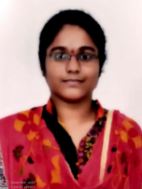
What I can say? These are wonderful days I met. Ofcourse, this will be a right place those who really want to shine. The Faculty members in my department are very supportive and encouraged me in every aspect. The curricular and cocurricular events held in my institution helped me to grow my confidence level.
Joshna B (B.Tech IT), 2017- 2021
Developer, NammaCart Solutions
Fee Structure
| Tuition Fee 2024 - 2025 (Per Sem) | Other Fee (Per Sem) | Total Fee 2024 - 2025 (Per Sem) |
|---|---|---|
| 65,000 | 44,000 | 1,09,000 |
Faculty of the Department
| S.No | NAME OF THE FACULTY | DESIGNATION | EDUCATIONAL QUALIFICATION | AREA OF SPECIALIZATION | EXPERIENCE IN YEARS | Vidwan ID | PHOTO |
|---|---|---|---|---|---|---|---|
| 1 | Dr.S.Arun | Professor & Director (IQAC) | M.E., Ph.D | Artificial intelligence, Human computer interaction, Vision System, Biosignal Processing | 18 | 258568 |  |
| 2 | Dr.K.Kalaivani | Associate Professor & Head | M.E., Ph.D | Image Processing, Data Analytics, Artificial Intelligence | 17 | 233987 |  |
| 3 | Dr. R.Anandan | Professor | M.E., Ph.D | Quantum Computing, Regenerative AI, AR- VR, Metaverse , Human Computer Interaction, Edge Computing, Computer Vision, Natural Language Processing, High Performance Computing | 23 | 84899 |  |
| 4 | Dr. N. Kumar | Professor | M.Tech., Ph.D | Computer Networks, Mobile and Wireless Ad hoc Networks, Software Defined Networks, Cloud Computing, IoT, Image Processing, AI & Machine Learning, Data Science | 18 | 232473 |  |
| 5 | Dr.A.Rajesh | Professor | M.Tech., Ph.D | Network Security | 16.8 | 232499 |  |
| 6 | Dr.A.Packialatha | Associate Professor | M.E., Ph.D | Pattern Recognition,Cloud Computing,Knowledge Engineering,Neural Networks, Big Data Analytics,Deep learning | 21 | 253610 |  |
| 7 | Dr.S.Meera | Associate Professor | M.E., Ph.D | Big data, image processing, computer networks, cloud computing, IoT | 23 | 315114 |  |
| 8 | Dr.K.UlagaPriya | Associate Professor | M.E., Ph.D | Machine learning, data science, software Engineering | 22 | 232452 |  |
| 9 | Dr.S.Sridevi | Associate Professor | M.E., Ph.D | Computer Networks,Wireless Sensor Networks, Artificial Intelligence,Machine Learning, Deep Learning, Data Science, Computer Vision,Network Security,Cyber Security,IoT | 15.8 | 234016 |  |
| 10 | Dr.A.Manikandan | Assistant Professor | M.E., Ph.D | Computer Networks, Cloud Computing, IoT, Image Processing, AI & Machine Learning, Data Science | 10.5 | 234022 |  |
| 11 | Dr.C.Swaraj Paul | Assistant Professor | M.E., Ph.D | Data Mining, Image Processing, IoT, Cloud Computing, sensors | 10 | 485613 |  |
| 12 | Dr.P.SheelaGowr | Assistant Professor | M.E., Ph.D | Image Processing, Cloud Computing, IoT, AI & Machine Learning, Data Science | 13.9 | 234045 |  |
| 13 | Dr.Banushri.A | Assistant Professor | M.Tech., Ph.D | Cloud Computing, Blockchain Technology, Computer Networks, Network Security | 13 | 237876 |  |
| 14 | Dr. S.Thirumal | Assistant Professor | M.E., Ph.D | Computer Networks, Cloud Computing, IoT, Image Processing, AI & Machine Learning, Data Science | 11.5 | 32474 |  |
| 15 | Dr.P.Thilakavathy | Assistant Professor | M.E., Ph.D | Image processing, machine learning, IoT | 9 | 470493 |  |
| 16 | Dr. G. Revathy | Assistant Professor | M.E., Ph.D. | Cybersecurity, Machine Learning, Deep learning, NLP | 5 | 475353 |  |
| 17 | Dr. A.Saritha | Assistant Professor | M.E., Ph.D. | Computer networks,cloud computing,Mobile Ad hoc networks,Machine learning | 13 | 233992 |  |
| 18 | Ms.Parvathavarthini.K | Assistant Professor | M.E., (Ph.D) | Image Processing, Computer Networks, Deep Learning | 9.6 | 232483 |  |
| 19 | Mr.C.Darwin | Assistant Professor | M.Tech | Grid Computing, Computer Networks, WSN, Cloud Computing | 9 | 495008 |  |
| 20 | Mr M.Franklin Singh | Assistant Professor | M.E. | Computer Networks, Embedded Systems, Sensors | 5 | 495002 |  |
| 21 | Mr Jegan Thomas | Assistant Professor | M.E. | Data Communication, Web Analytics, Digital Marketing | 5 | 495006 |  |
| 22 | Mr.K.Kalaiyamuthan | Assistant Professor | M.E. | Web Development | 11.7 | 487389 |  |
| 23 | Mrs.R.Deepa | Assistant Professor | M.E., (Ph.D) | Deep Learning /Machine Learning, Data Analytics | 9 | 253738 |  |
| 24 | Mrs.S.Vijitha | Assistant Professor | M.E., (Ph.D) | Block Chain Technology, Networks,Big Data security, Machine learning | 6 | 253591 |  |
| 25 | Mrs.S.Sethu | Assistant Professor | M.E., (Ph.D) | Computer Networks,Network Security, Deep learning | 5 | 469629 |  |
| 26 | Ms.Pavithra Jagadesan | Assistant Professor | M.E., (Ph.D) | Cyber security, machine learning | 3 | 475337 |  |
| 27 | Mrs. P. Mohana priya | Assistant Professor | M.E., (Ph.D) | Deep Learning, Machine learning,Image processing | 3 | 484305 |  |
| 28 | Mrs.M.Subbulakshmi | Assistant Professor | M.Tech. | Image Processing, Computer Networks. | 2 | 487404 |  |
| 29 | Mrs.M.Bhanumathi | Assistant Professor | M.E., (Ph.D) | Deep Learning, Machine Learning | 17 | 315834 |  |
| 30 | Mr.N.Udayakumar | Assistant Professor | M.E., (Ph.D) | Computer Networks, Network Security, Cyber Security, Malware Anaysis | 8.6 | 468408 |  |
| 31 | Mrs.P.V.Hemavathy | Assistant Professor | M.E., (Ph.D) | Deep Learning, Medical Image Processing | 8.5 | 464234 |  |
| 32 | Mrs.S.M.Sowmiya | Assistant Professor | M.E., (Ph.D) | Artificial Intelligence, Cloud Computing | 7.5 | 469822 |  |
| 33 | Mrs.S.J.Kavitha | Assistant Professor | M.E., (Ph.D) | Cloud Computing, IoT, Deep Learning | 3.7 | 469822 |  |
| 34 | Dr.S.Varshavardhini | Assistant Professor | M.E., Ph.D | Big Data, Data Mining , Machine Learning | 0.6 | 467731 |  |
| 35 | Mrs.S.Saranya | Assistant Professor | M.E | Computer networks | 0.7 | 467688 |  |
| 36 | Mrs.S.Divya Bairavi | Assistant Professor | M.E | Artificial intelligence and machine learning | 7 | 468931 |  |
| 37 | Mrs.R.Kalpana | Assistant Professor | M.E., (Ph.D) | Blockchain technology , Cryptography, Networks | 16 | 467969 |  |
| 38 | Mrs.N.Kavitha | Assistant Professor | M.E., (Ph.D) | Deep Learning, Medical Image Processing | 1.8 | 279169 |  |
| 39 | Mrs V.Bharathi | Assistant Professor | M.E | Image processing, Network security, artificial intelligence and machine learning | 10.5 | 468960 |  |
| 40 | Dr.KennethSundaraj (Adjunt) | Professor | M.E., Ph.D. | Image Processing, Networks. | - | - | |
| 41 | Mr.SanjeevArumugam (Adjunt) | Assistant Professor | M.E. | Internet of Things | - | - | |
| 42 | Dr.RM.Manikandan (Adjunt) | Associate Professor | M.E., Ph.D. | Computer Networks | - | - | |
| 43 | Mr.Aswinkumar KC (Adjunt) | Assistant Professor | M.Tech. | Internet of Things | - | - | |
| 44 | Mr.Surya S K (Adjunt) | Assistant Professor | M.E. | Internet of Things | - | - |
B.E. Electronics and Communication Engineering
Programme Outcomes
PROGRAM OUTCOME (PO)
PO-1: Scientific knowledge: Graduates will acquire biochemistry/biotechnology /
bioinformatics/ microbiology specific knowledge including recent techniques in the respective
fields coupled with hands-on skills and leadership skills for a successful career.
PO-2: Problem analysis: Graduates will be able to analyse, solve and troubleshoot problems in
implementation of biochemistry/biotechnology/ microbiological protocols.
PO-3: Design/development of solutions: Graduates will develop creative thinking and cooperate
with each other to solve problems in the field of biochemistry/biotechnology/bioinformatics/
microbiology.
PO-4: Conduct investigations of complex problems: Graduates will acquire practical skills –
which help in planning and designing protocols to validate hypothesis and execute experimental
techniques independently as well as assimilate, analyse and interpret subsequent data.
PO-5: Modern tool usage and communication: Graduates will effectively be able to manage
resources and time using ICT and computer enabled devices and accomplish ability to
understand and communicate all ideas effectively.
PO-6: Environment sustainability and Ethics: Graduates will get adequate knowledge to use
information and implement solutions for environmental protection and remediation. Graduates
will be aware of their role and responsibility in handling and use of microbes including
genetically modified microorganisms.
PO-7: Lifelong learning: Graduates will carry on to learn and adapt in a world of constantly
evolving technology.
Curriculum & Syllabus
CURRICULUM & SYLLABUS
MINIMUM CREDITS TO BE EARNED: 140
| Hours/Wee | Maximum Marks | |||||||
|---|---|---|---|---|---|---|---|---|
| Code No. | Course | Lecture | Tutorial | Practical | Credits | CA | SEE | Total |
| SEMESTER 1 | ||||||||
| LANG | Tamil I/ Hindi / French | 3 | 0 | 0 | 3 | 40 | 60 | 100 |
| ENG | English I | 3 | 0 | 0 | 3 | 40 | 60 | 100 |
| CORE1 | Fundamentals of Cell Biology | 3 | 1 | 0 | 4 | 40 | 60 | 100 |
| CORE2 | Genetics and Developmental Biology | 3 | 1 | 0 | 4 | 40 | 60 | 100 |
| CORE3 | Biochemistry | 4 | 0 | 0 | 4 | 40 | 60 | 100 |
| CORE | Practical 1 : Cell Biology, Genetics Developmental Biology Practica | 0 | 0 | 4 | 2 | 40 | 60 | 100 |
| CORE | Practical 2 : Biochemistry Practical | 0 | 0 | 4 | 2 | 40 | 60 | 100 |
| AECC | Communication Skills | 1 | 0 | 2 | 2 | 40 | 60 | 100 |
| SEC | Orientation/Induction programme / Life skills | - | - | - | - | - | - | - |
| 17 | 2 | 10 | 24 |
Eligibility Criteria
| Program | Eligibility | Criteria for Merit |
|---|---|---|
| B.E. Electronics and Communication Engineering | Lateral Entry : The Candidate who passes the Diploma in Engineering / Technology awarded by the concerned State Board of Technical Education or its equivalent are eligible to apply for Lateral Entry admission to the third semester of B.E., / B.Tech. in the branch corresponding to the branch of study. | Merit Based on Vels Entrance Examination Score and Merit Based on Percentage of marks secured in the qualifying examination. |
Career Prospects
CAREER PROSPECTS
-
Quality controller
-
Medical Scientist
-
Clinical Technician
-
Microbiologist
-
Process Development Scientist
-
Biopharma Sales Representative
-
Biotechnological Technician
-
Epidemiologist
-
Microbiologist
-
Medical and Clinical Lab Technologist
-
Biomanufacturing Specialist
-
Bioproduction Specialist
-
Medical Coder
-
Environmental Technician
Alumni Testimonials

Department of Biotechnology, VISTAS provides state-of-the-art infrastructure and facilities. The professors are highly qualified, knowledgeable, and friendly. The course curriculum is relevant and offers site visits. Most importantly, the annual events organized by the college are awesome and witness huge crowds. The university conducts various extracurricular activities throughout the year. I thoroughly enjoyed my student life while pursuing my Bachelors program at VISTAS (Deemed-to-be University).
Ms. Dr. M.Srimathi (B.Sc. Biotechnology), 2016-2019
Junior Microbiologist @ Eupro Biotech private Limited, Chennai
Fee Structure
| Tuition Fee 2024 - 2025 (Per Sem) | Other Fee (Per Sem) | Total Fee 2024 - 2025 (Per Sem) |
|---|---|---|
| 90,000 | 10,000 | 1,00,000 |
Faculty of the Department
| Sl. No. | Name of the Faculty | Designation | Educational Qualification | Area of Specialization | Experience in Years | Vidwan ID | Photos |
|---|---|---|---|---|---|---|---|
| 1 | Dr. V. Rajendran | Professor & Director | M.Tech., Ph.D | Systems and Signals, Underwater Electronics, Marine Instrumentation, Underwater signal processing, Ocean Acoustics, Wireless Network & Data Science and Analytics | 37 Years | 290838 | 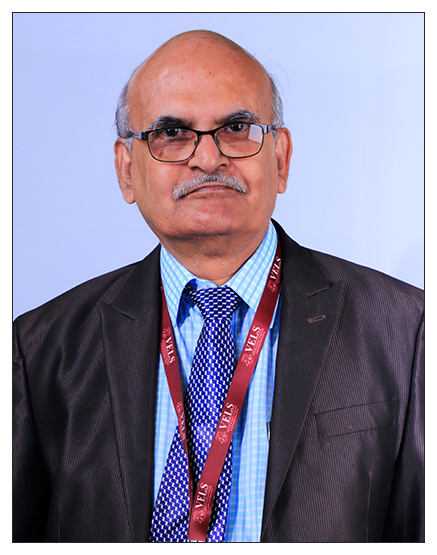 |
| 2 | Dr. Jerritta.S | Professor & HoD | M.E., Ph.D | Psychophysiology, Biomedical Signal and Image Processing, Time Frequency Analysis of time series, Artificial Intelligence & Machine Learning | 17.5 Years | 173520 | 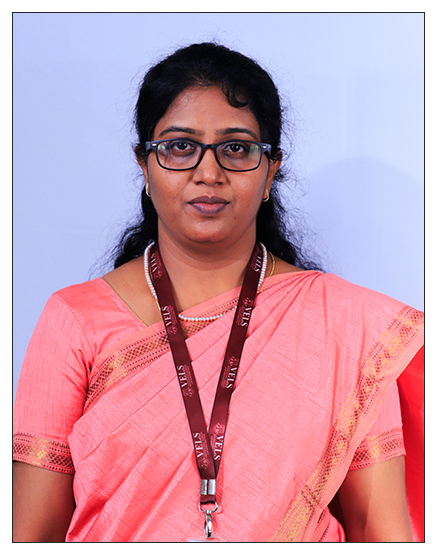 |
| 3 | Dr. Vijayalakshmi.P | Associate Professor | M.E., Ph.D | Underwater Communication and Networking, Machine Learning | 17 Years | 232580 | 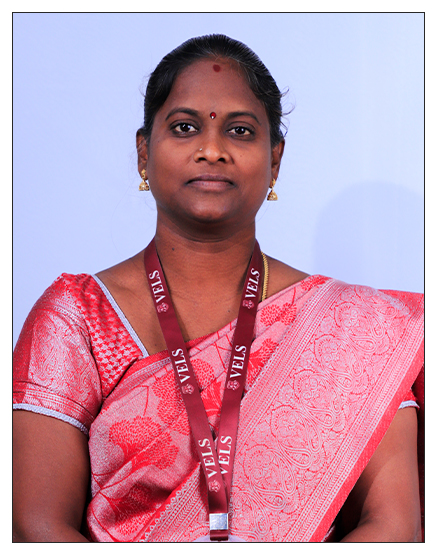 |
| 4 | Dr. M. Meena | Associate Professor | M.E., Ph.D | Wireless Networks - Cognitive radio | 13 Years | 232479 | 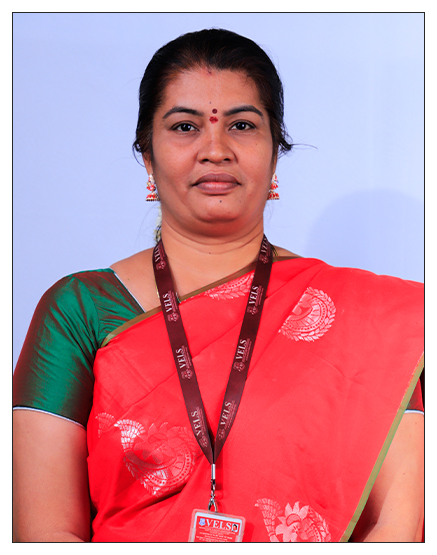 |
| 5 | Dr. G.R. Jothilakshmi | Professor | M.E., Ph.D | Medical Image Processing | 25 Years | 232524 | 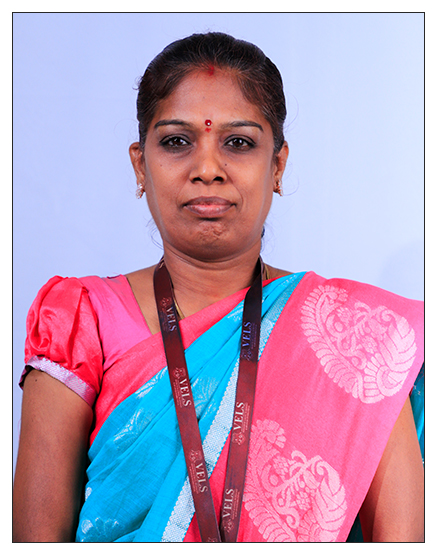 |
| 6 | Dr. T. Jaya | Associate Professor | M.E.,Ph.D | Wireless Networking, Underwater Communication | 12 Years | 290166 | 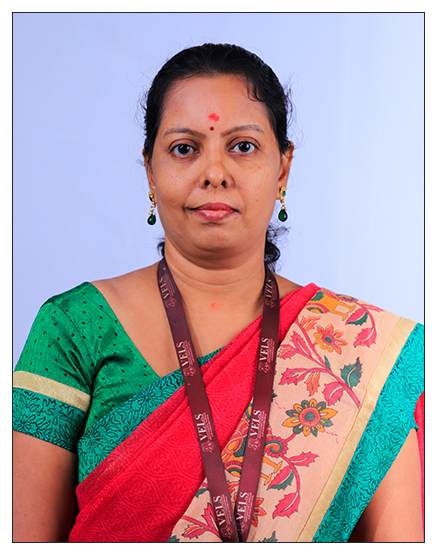 |
| 7 | Dr. Arul Stephen.C | Assistant Professor | M.E., Ph.D | Wireless Sensor Networks and Communication | 10 Years | 250052 | 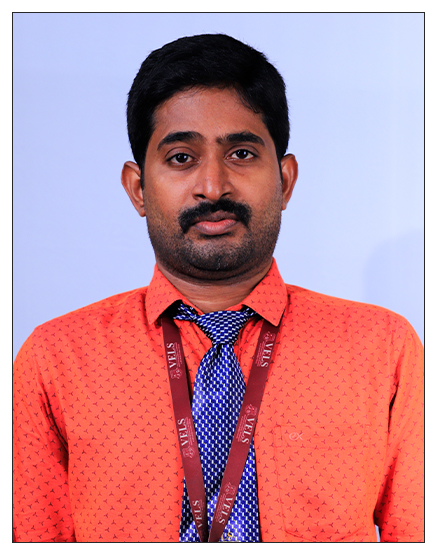 |
| 8 | Dr. M. Monisha | Assistant Professor | M.E., Ph.D | Digital Communication, Wireless Networks & Cognitive Radio Networks | 8 Years | 232464 | 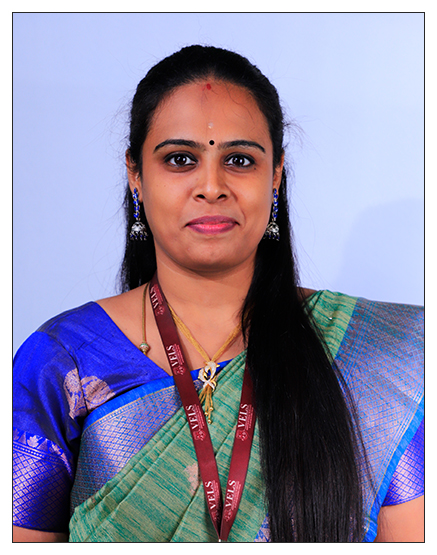 |
| 9 | Dr. Kumudham. R | Associate Professor | M.E., Ph.D | Image Processing and Electromagnetics | 9.6 Years | 173380 | 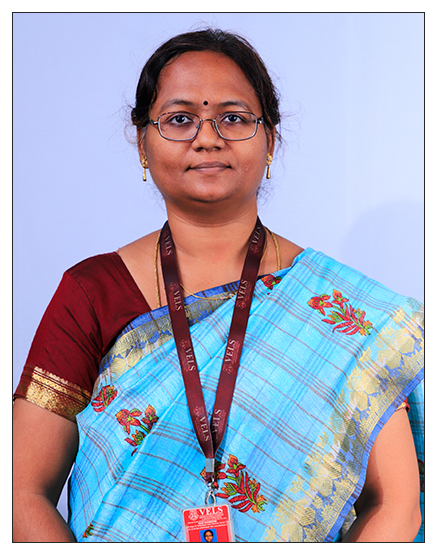 |
| 10 | Dr. C. Sharanya | Assistant Professor | M.E., Ph.D | Digital Electronics, Wireless Networks & Cognitive Radio Networks | 8.5 Years | 232683 | 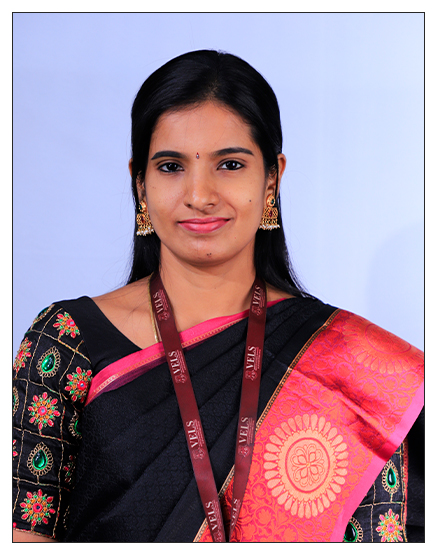 |
| 11 | Dr. A. Vijayalakshmi | Professor | M.E., Ph.D | Wireless Sensor Networks, Deep learning, Data Analysis and Secured Communication, IoT and Embedded Systems | 21 Years | 232640 | 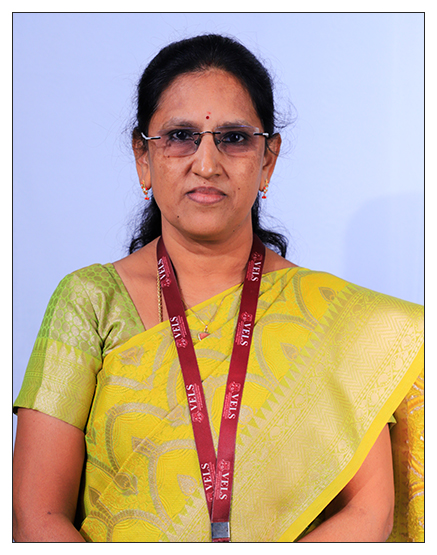 |
| 12 | Mr. J.Antony Veera Puthira Raja | Assistant Professor | M.E., MBA, (Ph.D) | Wireless Network & Data Science and Analytics | 10 | 497452 | 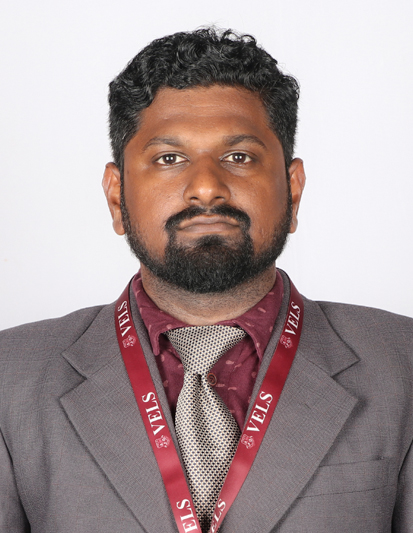 |
| 13 | Dr. Madona B Sahaai | Assistant Professor | M.Tech., Ph.D | Medical Image Processing | 4 | 250933 | 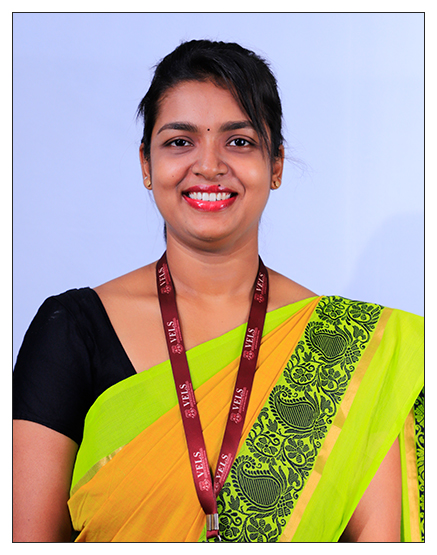 |
M.B.A. (Business Analytics)
Programme Educational Objectives (PEOs)
Programme Educational Objectives (PEOs)
PEO 1: To provide best quality of education and prepare the students to meet global standards and
competitive environment.
PEO 2: To inculcate team spirit and leadership capabilities among students to develop business leaders attain organizational development.
PEO 3: To impart ethical and moral values to create better citizens and society.
PEO 4: To develop entrepreneurial skills to think strategically and encourage them to become
entrepreneurs.
Programme Outcomes (POs) & Programme Specific Outcomes(PSOs)
Program Outcomes (POs)
PO 1: Apply knowledge of management theories and practices to solve business problems.
PO 2: Foster Analytical and critical thinking abilities for data-based decision making.
PO 3: Ability to develop Value based Leadership ability.
PO 4: Ability to understand, analyze and communicate global, economic, legal, and ethical aspects of Business.
PO 5: Ability to lead themselves and others in the achievement of organizational goals, contributing effectively to a team environment.
PO 6: Create, select and apply appropriate modern tools & techniques for analyzing, interpreting and solving business complexities.
PO 7: Develop an aptitude for creativity, innovation and entrepreneurship.
PO 8: Adapt life-long learning and professional development to enrich knowledge and competencies.
Program Specific Outcomes (PSOs)
PSO 1: Apply analytics principles to integrated business activities to articulate and deliver customer oriented quality outcomes within legal and ethical frameworks.
PSO 2: Develop operations to source and utilize appropriate analytics to support the implementation of business strategies and manage resources to improve business operations.
PSO 3: Utilize state-of-the-art analytics practices to implement strategic and operational concepts and techniques that underpin business for domestic and international markets.
Curriculum & Syllabus
Curriculum & Syllabus
Total Credits : 102
| SEMESTER I | Hour / Week | Maximum Marks | ||||||
|---|---|---|---|---|---|---|---|---|
| Code | Course | L | T | P | C | CA | SEE | Total |
| 23CMBN11 | Managerial Concepts and Organizational Behaviour | 4 | 0 | 0 | 4 | 40 | 60 | 100 |
| 23CMBN12 | Business Statistics for Data Science | 3 | 1 | 0 | 4 | 40 | 60 | 100 |
| 23CMBN13 | Managerial Economics | 4 | 0 | 0 | 4 | 40 | 60 | 100 |
| 23CMBN14 | Accounting and Finance for Data Science | 3 | 1 | 0 | 4 | 40 | 60 | 100 |
| 23CMBN15 | Legal and Business Environment | 4 | 0 | 0 | 4 | 40 | 60 | 100 |
| 23CMBN16 | Soft Skills and Etiquette for Managers | 4 | 0 | 0 | 4 | 40 | 60 | 100 |
| 23PMBN11 | Database Management System & SQL | 0 | 0 | 2 | 1 | 40 | 60 | 100 |
| 23PMBN12 | Data Visualization using R and Python (IBM) | 0 | 0 | 2 | 1 | 40 | 60 | 100 |
| 23PMBN13 | Business Analytics with Spreadsheet | 0 | 0 | 2 | 1 | 40 | 60 | 100 |
| 23PMBN14 | PRACTICAL - MOOC I | 0 | 0 | 2 | 1 | 40 | 60 | 100 |
| 22 | 2 | 8 | 28 |
Eligibility Criteria
| Program | Program Duration (Year) | Eligibility | Criteria for Merit |
|---|---|---|---|
| M.B.A. Business Analytics | 2 Years (4 Semesters) | Any Bachelor Degree of Minimum 3 years duration 10+2+3 pattern or 10+2+4 pattern of Education Obtained at least 50% marks (45% marks in case of candidates belonging to reserved category) in the qualifying examination. | Merit based on percentage of marks secured in the qualifying examination and score secured in CAT, MAT, XAT, VELS Entrance Test |
Career Prospects
CAREER PROSPECTS
- Data analyst
- Supply chain analyst
- Big Data analyst
- Business analyst
- Predictive modeler
- Technology analyst
- Analytics managers
- Data architect
- Market research analyst
- Data scientist
- Business intelligence manager
- Customer insights analyst
- Management analyst
- Health care Analysts
- IT analyst
Alumni Testimonials
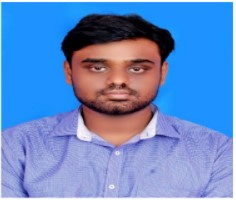
As Industries are moving towards automation there is high scope for Business Analytics degree holders in this evolving sector. Vels University MBA BA program has best curriculum structure for beginners.
Santhosh C MBA BUSINESS ANALYTICS Batch: 2017 - 19
Mandatory change Process Advisor, Barclays Shared Services

I did my MBA (Business Analytics) from Vels University and it was my best decision in my career. The Infrastructure and Environment is very really good and beautiful. The reason I enrolled in Business Analytics in Vels University, is to gain a better understanding of analytics and management. Before joining the college, I didn’t have much knowledge on analytics. After joining Vels University, I found the course very interesting and it went very detailed and the college faculty helped me a lot during my internship and projects.
Mohammed Irfan MBA BUSINESS ANALYTICS Batch: 2019 - 21
Data Analyst and BI, Seyasoft
Fees Structure
| Tuition Fee 2024 - 2025 (Per Sem) | Other Fee (Per Sem) | Total Fee 2024 - 2025 (Per Sem) |
|---|---|---|
| 77,000 | 54,000 | 1,31,000 + One Time Fees - Rs. 35,000 |
Housekeeping
Course Outcomes
Course Outcomes
CO1: Realize the role of the housekeeping department in hotels and its responsibilities.
CO2: Develop personal skills and in accommodation operation and services.
CO3: Design the organizational structure and the functional layout of housekeeping departments in various sized hotels.
CO4: Co-ordinate with other departments in the hotel Suggest the types of cleaning agents for different level of cleaning.
CO5: Practice and create a safe working environment
Curriculum & Syllabus
Eligibility Criteria
Carreer Propects
Alumni Testimonials
Fee Structure
| Tuition Fee per year | Administration Fee | Registration Fee | Misc. (per sem) | Skill Enhancement Fee (per year) | Exam Fee (Per Sem) | At the time of admission | Even Sem | Odd Sem |
|---|---|---|---|---|---|---|---|---|
| 20,000 | 4,650 | 2,650 | 300 | 1500 | 19,100 | 10,300 | 11,800 |
M.A. Astrology
Programme Outcomes
Curriculum & Syllabus
Eligibility Criteria
| Program | Program Duration (Year) | Eligibility | Criteria for Merit |
|---|---|---|---|
| M.A Astrology | 2 Years (4 Semesters) | Pass in UG with Specialization in Astrology. | Merit based on the percentage of marks secured in the qualifying examination |
Career Prospects
Alumni Testimonials
Fee Structure
| Tuition Fee 2023 - 2024 (Per Sem) | Other Fee (Per Sem) | Total Fee (Per Sem) |
|---|---|---|
| 13,000 | 6,000 | 19,000 |
LL.M Labour and Administrative Law
Programme Outcomes
- PO-1: Carry out independent research by utilizing their knowledge of variety of sources over a wide range of legal issues and concerns. (Legal Knowledge)
- PO-2: Exhibit analytical abilities that are necessary to evaluate the decisions pronounced by the courts, as well as various provisions of law; and re-interpret the views and submissions of jurists and academicians. (Analytical Skills)
- PO-3: Provide solutions to various issues based on the knowledge and understanding of the substantive and/or procedural components in their area of expertise. (Critical Thinking)
- PO-4: Conduct independent research on a variety of subjects, especially in their area of specialization and author scholarly research papers. (Research Skills)
- PO-5: Work on a variety of socio-legal concerns and cultivate a strong sense of duty and responsibility towards society. (Social Responsibility)
- PO-6: Gain a reputation as an accomplished legal expert in today’s demanding marketplace by mastering the most recent developments in the legal profession including using of modern da technology. (Competitive Skills)
- PO-7: Apply diverse knowledge to prepare for higher research degree while maintaining focus on the goals. (Higher Education)
- PO-8: Capable of putting their thoughts into words and their words into action, thus being able to communicate effectively (Communication Skills).
- PO-9: Able to work independently, identify appropriate resources required for a project, and manage project through to completion (Self-Directed Learning).
- PO-10: Embrace moral/ethical values in conducting one’s life, avoiding unethical behaviours and adopting professional, objective, unbiased and truthful actions in all aspects of work (Moral and Ethical Awareness).
Curriculum & Syllabus
Eligibility Criteria
| Program | Eligibility |
| LL.M Labour and Administrative Law | Pass in LLB / 5 Years Integrated LLB degree from recognized University. Age : As per norms of BCI |
Career Prospects
- CAREERS IN LABOUR DEPARTMENT
- LAW ACADEMICIAN
- LAW RESEARCHER
- POLICY MAKER
- LEGAL RESEARCH ANALYST
- ADVOCATE
- JUDICIAL SERVICES
- CIVIL SERVICES
- JOURNALIST
- LEGAL ADVISOR IN CORPORATES
- ENTREPRENEUR
- POLICY RESEARCH ANALYST
- ALL FIELDS THAT REQUIRE LAW GRADUATES
M.Sc Radiology & Imaging Technology
Program Outcomes (PO)
PROGRAM OUTCOMES (PO)
After completing this course, students will be able to:-
- Perform various Radiological procedures which are necessary for diagnostic
- Understand the advanced applications of Radiological Equipment such as MRI Machine, CT Scan Machine, X-ray Machine
- Maintain radiation safety principles in radiology
- Enhance knowledge from clinical experience, interactions & discussions and research to improve the quality of training and education in
- Explore the subject in depth and develop high degree of expertise to contribute to advancement of knowledge in radiology.
- Develop teaching and presentation skills necessary to become efficient teachers utilizing state-of-the art facilities and equipment.
Curriculum & Syllabus
Curriculum & Syllabus
Semester – I
- Radiological Physics
- Conventional Radiological and Imaging Equipment
- Radiographic and Imaging Techniques
- Biostatistics
Semester – II
- Radiographic Procedure and Positioning
- Advanced Technique & Instrumentation of CT
- Advanced Technique & Instrumentation of MRI
- Medical Ethics
Semester – III
- Quality Assurance and Quality Control in Diagnostic and Imaging
- Newer Imaging Modalities
- Principles of Epidemiology
- Research Methodology
Semester – IV
- Radiation protection in diagnostic imaging and Nuclear Medicine imaging techniques, Post processing techniques in radiology
- Intervention Radiological Techniques and Patient care
- Seminars, Journals Clubs and Group Discussions
Career Prospects
Career Prospects
- Radiology Technologists
- Diagnostic Medical Sonographer
- MRI Technologist
- CT Technologist
- Radiation Safety officer
- Research analyst
- Application Manager
- Lecturer
Eligibility Criteria
| Program | Program Duration (Year) | Eligibility | Criteria for Merit |
|---|---|---|---|
| M.Sc Radiology & Imaging Technology | 2 Years (4 Semesters) | Degree in B.Sc. Radiology & Imaging Technology / Medical Imaging Technology | Merit based on the percentage of marks secured in qualifying examination |
Fees Structure
| Tuition Fee 2024 - 2025 (Per Sem) | Other Fees (Per Sem) | Total Fee 2024 -2025 (Per Sem) |
|---|---|---|
| 48,550 | 37,950 | 86,500 |
bca phase1
Fee Structure
| Tuition Fee 2024 - 2025 (Per Sem) | Other Fee (Per Sem) | Total Fee 2024 - 2025 (Per Sem) |
|---|---|---|
| 33,000 | 25,000 | 58,000 |
Department of Microbiology
About the Department
The Department of Microbiology is one of the oldest departments, established in 1993 and was integrated into the School of Life Sciences, VELS University during 2008. The department offers B.Sc. Microbiology and a novel job-oriented course, M.Sc. Immunology and Microbiology in addition to M.Phil. and Ph.D. programmes in research. The syllabus of these programmes is fortified with the latest developments to facilitate easy employability. The curriculum is based on Choice Based Credit System (CBCS) providing academic flexibility with Core and Elective courses enabling student community to prefer their electives of interest. Priority is also given to enhance the research ability among students and motivate them to become future scientists in the form of training/internship, group projects and dissertation works. This practice improves the analytical skill and logical reasoning of the student. Developing entrepreneurship skills among students is another priority given by the department. The department provides hands-on experience in microbiological techniques through two common laboratories and one research laboratory, equipped with basic and modern equipments such as PCR, Gel Documentation, ELISA Reader, Cooling Centrifuge, BOD etc.
The department comprises of dedicated, experienced and qualified faculty members with teaching and research proficiency. In addition to teaching, faculty members are actively engaged in research by applying and carrying out funded projects. Faculty members also have research publications of their research findings in reputed indexed journals. The thrust areas of research include Marine Bio products, Applied Immunology, Plant- Microbe Interactions, Molecular drug resistance mechanisms, Molecular interactions in biofilms, Medical and Applied Mycology, Bio-nanomaterials etc.
The department has organized many conferences/seminars/workshops/guest lectures for the benefit of the student community in providing opportunity to interact with scientists and delegates from other universities and industries. Students are also encouraged to participate/present their research findings in International and National Conferences. The department is also actively linking up with industries of high repute in terms of short-term training and student projects. The department has signed an MoU with Asian Enviro Labs for training of students. The alumni of the department are well placed in government and non-government sectors. The department along with a well functioning placement cell enables students to get good placements in healthcare, food, dairy, pharmaceutical industries. Overall, the department provides conducive environment to foster research led academic programs enabling students to be professionally competent.
Vision & Mission
Vision of the Department
To produce graduates with relevant education descriptors and hands-on skills in microbiology and related areas of life sciences plus holistic development of individuals that makes them responsible citizens of society.
Mission of the Department
• Imparting relevant knowledge and creating an atmosphere to develop innovative and critical thinking.
• Skill enhancement through hands-on training and value-added courses plus add on courses.
• Sustained focus on original high quality research encouraging scientific thinking and approach.
• Creating an environment for holistic development of individuals with emphasis on spirit of integrity, equity, professional ethics and social harmony through the exposure and participation in co-curricular, extracurricular and extension activities.
Programmes Offered
- B.Sc MICROBIOLOGY
- M.Sc IMMUNOLOGY & MICROBIOLOGY,
- M.Phil, Ph.D
Faculty-Student Ratio: 1: 20
Program Educational Objectives (PEOs)
PROGRAM EDUCATIONAL OBJECTIVES (PEO)
PEO1: To provide the graduates with knowledge in microbiology and an overview of the processes that employ or deal with microbes that enables them to handle the safe and efficient use of microbiological applications with development of competence on par with global standards and helps the graduates for life-long learning.
PEO2 To prepare graduates by imparting skills to use technological developments related to current and advanced areas involving molecular diagnostics, immunotechnolgy, mass cultivation of microbes, downstream processing and nanotechnology with scope for upskilling in all potential future technologies so as to contribute effectively for Research & Development leading to patenting and publishing.
PEO3: To train graduates to choose a decent career option either as Entrepreneur or having a high degree of employability; or pursue higher education – by empowering students with basic interpersonal skills, ability to handle critical situations allowing them to be good team members as well as training to excel in competitive examinations.
PEO4: To impart a strong sense of social responsibility with awareness of professional and societal ethical values and scope to develop leadership capabilities.
PEO5 : To establish an environment that accentuates the requirement to fulfil life-long learning for the overall development of self and society at large.
Program Outcomes (PO) & Program Specific Outcome (PSO)
PROGRAM OUTCOMES (PO)
PO1- Microbiology knowledge: Graduates will acquire microbiology specific knowledge including molecular biology, immunology and rDNA technology coupled with hands-on skills and leadership skills for a successful career.
PO2- Problem analysis: Graduates will be able to analyse, solve and troubleshoot problems in implementation of microbiological protocols.
PO3- Design/development of solutions: Graduates will develop creative thinking and cooperate with each other to solve problems in the field of microbiology.
PO4- Conduct investigations of complex problems: Graduates will acquire practical skills – which help in planning and designing protocols to validate hypothesis and execute experimental techniques independently as well as assimilate, analyse and interpret subsequent data.
PO5- Modern tool usage and communication: Graduates will effectively be able to manage resources and time using ICT and computer enabled devices and accomplish ability to understand and communicate all ideas effectively.
PO6- Environment sustainability and Ethics: Graduates will get adequate knowledge to use information and implement solutions for environmental protection and remediation. Graduates will be aware of their role and responsibility in handling and use of microbes including genetically modified microorganisms.
PO7- Lifelong learning: Graduates will carry on to learn and adapt in a world of constantly evolving technology.
PROGRAM SPECIFIC OUTCOME (PSO)
PSO1: Microbiology skills: The ability to understand the basic concepts related to the relevant fields of microbiology which will enable them to analyse and develop solutions to microbiology related problems.
PSO2: Microbiology related employability skills: The ability to use the acquired hands-on skills in microbiology, molecular biology, immunology, medical microbiology and screening for useful biomolecules within employment areas.
PSO3: Successful Career and Entrepreneurship: The ability to gainfully become an entrepreneur by using microorganisms to produce biofertilizers, mushrooms and pharmaceutically important biomolecules as well as using practical hands-on training to become employed in diagnostic, industrial, pharmaceutical, food and research and development laboratories.
Curriculum & Syllabus
CURRICULUM & SYLLABUS
MINIMUM CREDITS TO BE EARNED: 140
| Hours/week | Maximum Marks | |||||||
|---|---|---|---|---|---|---|---|---|
| Code No. | Course | Lecture | Tutorial | Practical | Credits | CA | SEE | Total |
| SEMESTER 3 | ||||||||
| LANG | Tamil III/ Hindi III/ French III | 3 | 0 | 0 | 3 | 40 | 60 | 100 |
| ENG | English – III | 3 | 0 | 0 | 3 | 40 | 60 | 100 |
| CORE 7 | Introduction to Environmental Microbiology | 4 | 0 | 0 | 4 | 40 | 60 | 100 |
| CORE 8 | Basic Food Microbiology | 3 | 0 | 2 | 4 | 40 | 60 | 100 |
| CORE 9 | Introduction to Virology | 4 | 0 | 0 | 4 | 40 | 60 | 100 |
| AECC | Environmental Studies | 2 | 0 | 0 | 2 | 40 | 60 | 100 |
| CORE | Practical in Environmental microbiology | 0 | 0 | 4 | 2 | 40 | 60 | 100 |
| SEC | Soft Skills - II / Sector Skill Council Course | 2 | 0 | 0 | 2 | 40 | 60 | 100 |
| SEC | Swayam / NPTEL / Value Added Course | - | - | - | - | - | - | - |
| Total | 21 | 0 | 6 | 24 |
Program Educational Objectives
PROGRAM EDUCATIONAL OBJECTIVES (PEOs)
PEO 1:To provide the candidates with in-depth knowledge in immunology and microbiology and afirm grasp of the processes that employ or deal with microbes plus adept use of immunological techniques in relevant technologies that empowers them to deal with the safeand efficient use and monitoring of microbiological and immunological applications with development of competence on par with global standards and helps in the life-long learningof candidates.
PEO 2:To enable candidates by imparting updated analytical and hands-on skills to use andimplement technological developments related to advanced and potential areas involving molecular diagnostics, automated systems of diagnosis, immunoblotting technology,upstream or downstream processing and nanotechnology with scope for upskilling upto future technologies so as to contribute effectively for Research & Development leading topatenting and publishing.
PEO 3:To train candidates to choose a decent career option either as Entrepreneur or having a high degree of employability; or pursue research – by providing training in interpersonal skills,sense of social responsibility, ethical and administrative acumen, ability to handle critical situations allowing them to be good team members and leaders as well as training to excel incompetitive examinations.
PEO 4:To impart a strong sense of social responsibility with awareness of professional and societal ethical values and scope to develop leadership capabilities with the continuous need for lifelong learning.
Eligibility Criteria
| Program | Program Duration (Year) | Eligibility | Criteria for Merit |
|---|---|---|---|
| B.Sc Micro-Biology | 3 Years (6 Semesters) | A pass in higher secondary with Physics, Chemistry, Biology/ Botany/ Zoology/ Vocational – Agriculture or any Life Sciences | Merit based on the percentage of marks secured in the qualifying examination |
Programme Outcomes & Programme Specific Outcomes
PROGRAM OUTCOME (PO)
PO-1: Life Sciences knowledge: Successful candidates will apply current/recent specific knowledge in the respective discipline with proficiency in practical skills and leadership skills for a successful career.
PO-2: Problem analysis: Successful candidates will be able to apply the knowledge in microbiology to design standards, resolve and troubleshoot problems in implementation or standardization of protocols.
PO-3: Design/development of solutions: Successful candidates will develop creative and cognitive thinking and cooperate with each other to solve problems in the field of Life sciences.
PO-4: Conduct investigations of complex problems: Successful candidates will acquire capabilities to plan and design protocols and utilize practical skills to validate hypothesis by executing experimental techniques independently coupled with the ability to assimilate, apply, analyze, interpret and accurately evaluate subsequent data.
PO-5: Modern tool usage: Successful candidates will effectively be able to choose and manage resources including time using ICT and other computer enabled devices.
PO-6: Ethics: Successful candidates will be aware of their role and responsibility in proper handling, use and safe disposal of microbes including genetically modified microorganisms.
PO-7: Communication: Successful candidates will have the ability to understand and communicate all ideas and concepts effectively.
PO-8: Environment sustainability: Successful candidates will get adequate knowledge to use information and implement solutions for environmental protection, safeguards and remediation.
PO-9: Lifelong learning: Successful candidates will carry on to learn, adapt and disseminate knowledge in a world of constantly evolving technology.
PROGRAMME SPECIFIC OUTCOMES (PSOs)
The overall outcome of graduates specific to M.Sc. in Immunology & Microbiology programme at VISTAS can be summarized as:
PSO 1:The ability to understand, implement and troubleshoot the concepts related to the fields ofmicrobiology and immunology which will enable them to analyse and develop solutions tomicrobiology, immunology and rDNA related problems using knowledge and hands-on skillsin microbiology, molecular identification, immunodiagnostics, screening for useful biomolecules and nanotechnology in the interpretation of data in relevant protocols.
PSO 2:The ability to gainfully become an entrepreneur by using microorganisms to mass producebiofertilizers, mushrooms or any other edible forms of SCP, fermented productsand pharmaceutically important biomolecules as well as using knowledge, communication andpractical hands-on training to become employed in diagnostic, industrial, pharmaceutical, food and research and development laboratories.
PSO 3:The ability to understand the principles and concepts underlying immunology and microbiology, including the interactions between microorganisms and the immune system and to Possess proficient laboratory skills in techniques relevant to immunology and microbiology, including culturing microorganisms, performing immunological assays, and molecular biology techniques such as PCR and sequencing etc.,
PSO 4:The ability to critically analyze the research in Immunology and Microbiology and to evaluate experimental design, methodology and interpretation of results and to understand the regulation of immune responses which includes the roles of different immune cells, cytokines and signaling pathways in health and disease.
PSO 5:For the effective scientific communication and to relate microbes and their role in ecosystem and public health research with wide opportunities and career prospects.
Career Prospects
CAREER PROSPECTS
- Clinical Laboratory Scientists
- Food Scientists and Technologists
- Immunologists
- Mycologists
- Parasitologists
- Personal Care Product and Cosmetic Scientists and Technologists
- Pharmaceutical Scientists and Technologists
- Science Writers
- Technical Support Specialists
- Virologists
- Water Quality Laboratory Technicians
Curriculum & Syllabus
CURRICULUM & SYLLABUS
MINIMUM CREDITS TO BE EARNED: 90
| Hours/week | Maximum Marks | |||||||
|---|---|---|---|---|---|---|---|---|
| Code No. | Course | Lecture | Tutorial | Practical | Credits | CA | SEE | Total |
| SEMESTER 1 | ||||||||
| CORE 1 | Cell Culture and Fermentation Technology | 4 | 0 | 0 | 4 | 40 | 60 | 100 |
| CORE 2 | Immunology | 4 | 0 | 0 | 4 | 40 | 60 | 100 |
| CORE 3 | General Microbiology | 3 | 0 | 2 | 4 | 40 | 60 | 100 |
| CORE | Practical Immunology and Systemic Bacteriology | 0 | 0 | 4 | 2 | 40 | 60 | 100 |
| DSE | Medical Bacteriology and Virology | 4 | 0 | 0 | 4 | 40 | 60 | 100 |
| DSE | Industrial Microbiology | 4 | 0 | 0 | 4 | 40 | 60 | 100 |
| SEC | Soft Skill 1 | 2 | 0 | 0 | 2 | 40 | 60 | 100 |
| Total | 21 | 0 | 6 | 24 | 280 | 420 | 700 |
Alumni Testimonials

“My experience at Vels university was quite different and before my showtime i was afraid of my future. Once after entering microbiology department, i made cohesive bonding and cognition among faculty, who enlightened my path towards extensive and intensive knowledge on microbiology. The astonishing environment of Vels university propelled me into my masters program in a top college. I thank them for feeding me with knowledgeable fuel to drive my future in successful roads.”
Mr. MOHINUDEEN (B. Sc Microbiology) 2012-2015 Batch
Business Manager, Pfizer Ltd, Chennai.

I have finished my graduation from the department of Microbiology, Vels University and it was a good opportunity for me to build up good knowledge in this field. I found this subject very interesting from the first day and the professors from this department helps me a lot to gather knowledge. It was good to be in the lab and learn the skill of different practical works. Finally it was a good experience to be in the department.
Mr. SOMAK BANERJEE (B. Sc Microbiology) 2012-2015 Batch
Academic Specialist, Think and Learn Pvt Ltd., Chennai
Eligibility Criteria
| Program | Program Duration (Year) | Eligibility | Criteria for Merit |
|---|---|---|---|
| M.Sc Immunology & Microbiology | 2 Years (4 Semesters) | Degree in B.Sc., (Microbiology/ Biotechnology/ Biochemistry/ Bioinformatics/ Botany/ Zoology or any Biological Sciences) | Merit based on the percentage of marks secured in the qualifying examination |
Fee Structure
| Tuition Fee 2024 - 2025 (Per Sem) | Other Fee (Per Sem) | Total Fee 2024 - 2025 (Per Sem) |
|---|---|---|
| 17,000 | 13,000 | 30,000 |
Career Prospects
CAREER PROSPECTS
- Clinical Laboratory Scientists
- Clinical or research laboratory manager
- Biotechnologists
- Biosafety officer
- Food Scientists and Technologists
- Immunologists
- Teachers and Professors
- Mycologists
- Parasitologists
- Personal Care Product and Cosmetic Scientists and Technologists
- Pharmaceutical Scientists and Technologists
- Research associate
- Science Writers
- Technical Support Specialists
- Virologists
- Water Quality Laboratory Technicians
Faculty of the Department
| Sl. No. | Name of the Faculty | Designation | Educational Qualification | Area of Specialization | Experience in Years | Vidwan ID | Photos |
|---|---|---|---|---|---|---|---|
| 1 | Dr.AK.Kathireshan | Professor & Director | M.Sc., M.Phil., SLET, Ph.D | Molecular Drug Resistance, Plant Microbiome and Bioprospecting of Marine Algae | 29 years 1 month | 234065 | 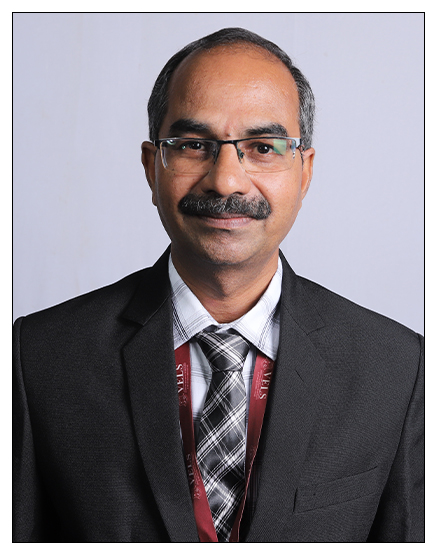 |
| 2 | Dr.Gayathri.G | Associate Professor & Head | M.Sc., M.Phil, SET, Ph.D | Microbial Biofilms, Nanomaterials, Immunotherapeutics | 25 years 2 months | 173799 | 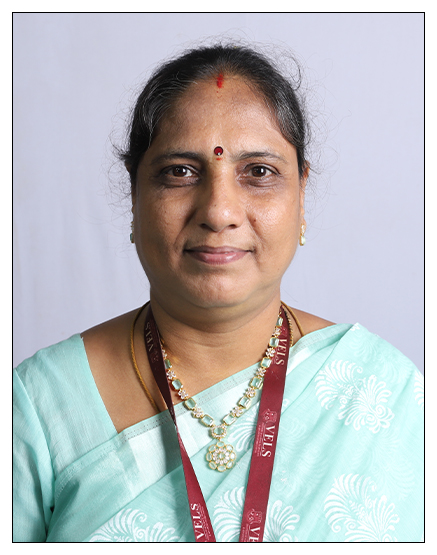 |
| 3 | Dr.Suresh Dhanaraj | Associate Professor | M.Sc.,M.Phil, Ph.D,NET. | Microbial Nanotechnology, Fermentation Technology | 24 years 2 months | 290392 | 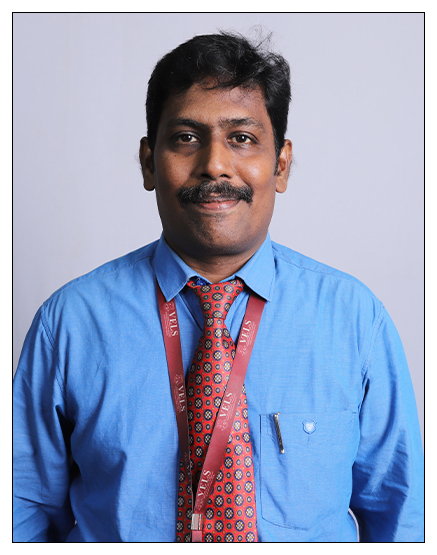 |
| 3 | Dr.Prabha.S.B | Assistant Professor | M.Sc., Ph.D | Applied Microbiology | 8 years2 months | 234101 | 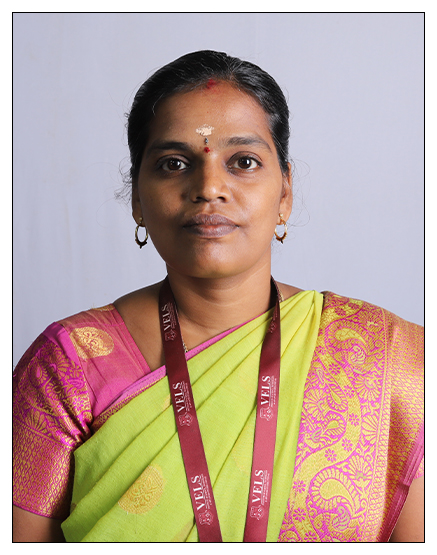 |
| 5 | Dr.Raj Yoganandh.S.V | Assistant Professor | M.Sc., Ph.D | Mycology, Antimicrobial resistance | 5years,0months | 234082 | 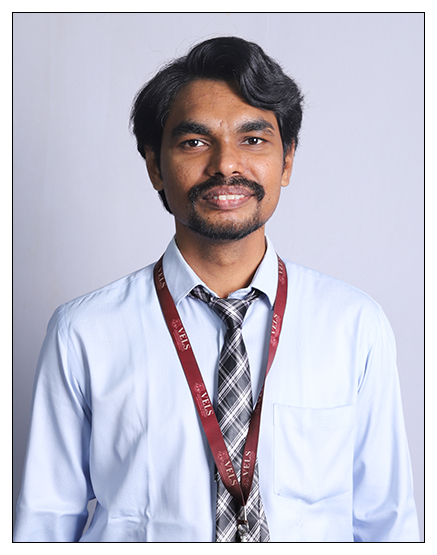 |
| 6 | Dr.Murugan.K | Assistant Professor | M.Sc, Ph.D | Bioremediation, Biodegradation, Waste water treatment using VBNC Bacteria | 1years,1months | 469422 | 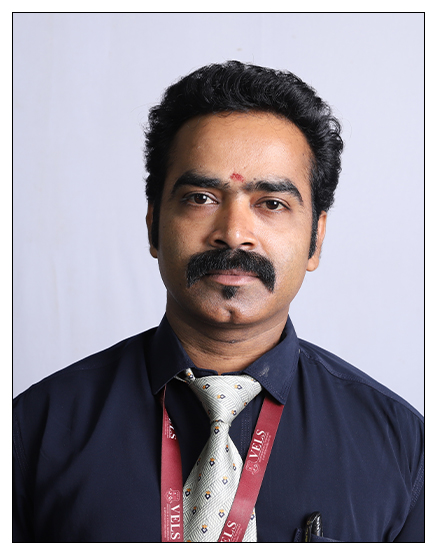 |
| 7 | Dr.Sudharsan.K | Assistant Professor | M.Sc, Ph.D | Industrial microbiology, Biopolymer production | 7 years 10 months | 469400 | 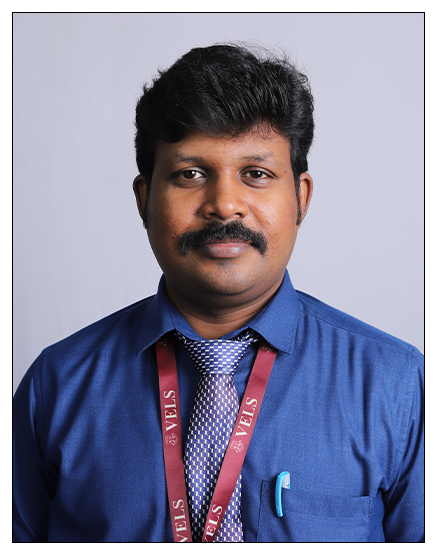 |
Alumni Testimonials

If you asking me about my experience during study in Vels University, it was awesome and full of enthusiasm. Most important fact is that our teachers were so co-operative, simple and well informed . They always motivate us to innovate and to be an expert in our field. Besides this friends in our department and in other department too were so friendly. As I come across the whole two year course, I always felt a sense of unity in diversity of all Indian culture in Vels. The centrally location of Vels near to Chennai city help us to travel to shopping mall and city side for amusement during weekends . In my view to become a good person and make a good personality, Vels university is a good choice. Thank you to give me this opportunity to share my experience.
Mr. Anup Ranjan Jena (M.Sc. Microbiology) 2010-2011
Marketing Manager,Imgenex

When I decided to do my M.Sc , I came across in contact of many Universities in Bangalore and Chennai, but at last I stopped in VELS University (VU) in Chennai. I have seen many universities, which are doing business of education instead of giving quality of studies to students. But VU is best, which is always thinking of students’ perspective. I had a great time at VU. It was very helpful in achieving my career goal and converts my endeavors into real time world. The faculties are very experienced and committed to help the students to excel. I am very thankful to the faculty that gave me the knowledge and confidence and has brought a new dimension into my life to achieve a successful career .I would strongly recommend anyone to VU for its quality in studies/course frame. Very Best,
Mr. BIRAJA S. PATTNAIK (M.Sc. Microbiology) 2009-2011
Food Technologist
Fee Structure
| Tuition Fee 2024 - 2025 (Per Sem) | Other Fee (Per Sem) | Total Fee 2024 - 2025 (Per Sem) |
|---|---|---|
| 25,000 | 20,000 | 45,000 |
M.A Bharatanatyam
Program Outcome (PO)
PROGRAM OUTCOME (PO)
PO1: A advanced and systematic or coherent understanding of the academic field of Bharatanatyam, its different learning areas and applications, and its linkages with related disciplinary areas/subjects.
PO2: Be well versed in the various theoretical concepts with an outline study of musical treatises in Sanskrit and Tamil from ancient to modern times.
PO3: Be able to present and perform Indian Classical Bharatanatyam with a good repertoire of compositions.
PO4: The skills and knowledge gained has intrinsic beauty, which also leads to proficiency in analytical reasoning.
PO5: Skills in areas related to one’s specialization area within the disciplinary and current and emerging developments in the field of Music and Fine Arts.
Curriculum & Syllabus
Curriculum & Syllabus
Total number of Credits: 90
| SEMESTER I | Hours/Week | Maximum Marks | ||||||
|---|---|---|---|---|---|---|---|---|
| Code No. | Course | Lecture | Tutorial | Practical | Credits | CA | SEE | Total |
| Core | Historical and Theoretical Concepts of Fine Arts (Theory) | 4 | 0 | 0 | 4 | 40 | 60 | 100 |
| Core | A Literary Survey of Dance Concepts (Theory | 4 | 0 | 0 | 4 | 40 | 60 | 100 |
| Core | Bharatanatyam Repertoire – 1 (Practical) | 2 | 0 | 4 | 4 | 40 | 60 | 100 |
| Core | Foundation Course in Performance-1 (Practical) | 1 | 0 | 2 | 2 | 40 | 60 | 100 |
| DSE | Foundation Course in Dance Music - 1 (Practical) | 2 | 0 | 4 | 4 | 40 | 60 | 100 |
| DSE | Bharatanatyam Repertoire -2 (Practical) | 0 | 3 | 2 | 4 | 40 | 60 | 100 |
| SEC | Soft Skill 1/ Sector Skill Course | 2 | 0 | 0 | 2 | 40 | 60 | 100 |
| Total | 15 | 3 | 12 | 24 |
Eligibility Criteria
| Program | Program Duration (Year) | Eligibility | Criteria for Merit |
|---|---|---|---|
| M.A Bharatanatyam | 2 Years (4 Semesters) | B.A. Degree (Bharata Natyam) or Bachelor of Dance (B.Dance) Any UG degree with Diploma in Dance or Grade exams or Five years training in Bharata Natyam from recognized Institute | Merit based on percentage of marks secured in the qualifying examinations |
Career Prospects
CAREER PROSPECTS
- Professional Performer
- Teaching Faculty at Schools
- Entrepreneurs
- Aboard Programmes
- Doordharshan Grade Artist.
- Own Institution
Alumni Testimonials

He has successfully completed M.A. Bharatanatyam in the Department of School of Music and Fine Arts and started his own institution.
Ashwini Sidharth M.A. Bharathanatyam 2019-2022
Running Own School
Fees Structure
| Tuition Fee 2023 - 2024 (Per Sem) | Other Fee (Per Sem) | Total Fee (Per Sem) |
|---|---|---|
| 15,000 | 10,000 | 25,000 |
BCA
Programme Educational Objectives (PEOs)
PROGRAM EDUCATIONAL OBJECTIVES (PEO)
PEO1: Emerge as globally competent computer professionals in multidisciplinary domains.
PEO2: Excel as a socially committed individual having an ethical value and empathy for the needs of society
PEO3: Become an entrepreneur possessing a leadership skill that can provide solutions and develop software products.
PEO4: Involve in lifelong learning to adapt the latest technologies and advancements in the emerging areas of computer applications.
PEO5: Provide technical & skill-based quality training to the students in the field of Information technology.
Programme Outcomes (POs) & Programme Specific Outcomes(PSOs)
PROGRAM OUTCOME (PO)
PO1: Critical Thinking: Apply knowledge of Computer Science to identify, and analyze, problems and to provide effective solutions in the area of Computing.
PO2: Computing Skills and Ethics: Analyze a problem, and identify and define the computing requirements appropriate to its solution.
PO3: Analytical skill: Ability to design, develop algorithms, and provide software solutions to cater the industrial needs.
PO4: Modern Tool Usage: Use current techniques, skills, and tools necessary for computing practices
PO5: Employability Skills: Inculcate skills to excel in the fields of Information Technology and its Enabled services, Government and Private sectors, Teaching and Research.
PO6: Ethics: Insists ethical responsibilities, and human and professional values, and makes their contribution to society.
PO7: Self-Directed and Life-long Learning: Engaged in lifelong learning to equip them to the changing environment and be prepared to take up mastering programs.
PO8: Individual and team work: Function effectively as an individual, and as a member or a leader in diverse team and multidisciplinary settings.
PO9: Environment and sustainability: Understand the impact of professional engineering solutions in societal and environmental contexts, and demonstrate the knowledge of, and need for sustainable development.
PO10: Project management and finance: Demonstrate knowledge and understanding of the problem and management principles and apply
PO11: Conduct investigations of complex problems: Use research-based knowledge and research methods including design of experiments, analysis and interpretation of data
PO12: Design/development of solutions: Design solutions for complex problems to meet the specified needs, considering the public health and safety cultural, societal, and environmental.
PROGRAM SPECIFIC OUTCOME (PSO)
PSO1: Understand the basic concepts of computers.
PSO2: An ability to apply knowledge of mathematics, computer science, and management in practice.
PSO3: An ability to enhance not only a comprehensive understanding of the theory but its application too in diverse field
PSO4: Analyze and apply the latest technologies to solve problems in the areas of computer applications.
PSO5: Apply technical and professional skills to excel in business.
PSO6: Able to build software applications and tools through quantitative and qualitative techniques
PSO7: Able to design a computing system to meet desired needs within realistic constraints such as safety, security, and applicability in multidisciplinary teams with a positive attitude.
PSO8: Develop practical skills to provide solutions to industry, society, and business
PSO9: Able to communicate effectively in both verbal and written form.
Curriculum & Syllabus
CURRICULUM & SYLLABUS
MINIMUM CREDITS TO BE EARNED: 140
| Category | Course | Hours/Week | Credits | ||
|---|---|---|---|---|---|
| Lecture | Tutorial | Practical | |||
| CORE | Problem Solving and Objects Oriented Programming | 4 | 0 | 0 | 4 |
| CORE | Digital Logic Fundamentals | 4 | 0 | 0 | 4 |
| CORE | Mathematics I | 0 | 0 | 6 | 2 |
| CORE | Pratical -I Programming in C++ | 0 | 0 | 6 | 2 |
| AECC | Ability Enhancement Complusory Courses - I | 5 | 0 | 0 | 5 |
| AECC | English Paper - I | 5 | 0 | 0 | 5 |
| Total | 22 | 0 | 6 | 24 | |
Eligibility Criteria
| Program | Program Duration (Year) | Eligibility | Criteria for Merit |
|---|---|---|---|
| B.C.A. | 3 Years (6 Semesters) | "Pass in (10+2) or equivalent with Maths/ Computer Science/ Computer Applications /Business Maths/ Statistics/ Informatics Practices/Information Technology/Artificial Intelligence Lateral Entry: Pass in Diploma in Computer Science/ ECE/ Visual Communication/ EEE/ Information Technology/ Computer Technology" | Merit based on the percentage of marks secured in the qualifying examination |
Career Prospects
CAREER PROSPECTS
- Software Developer
- Software Publisher
- Systems Administrator
- Chief Information Officer
- Computer Programmer
- Computer Support Service Specialist
- Computer Scientist
- Computer Systems Analyst
- Database Administration
- Information Systems Manager
Alumni Testimonials

I completed my BCA degree from Vels University. The department taught the appropriate information needed for the then industry needs beyond the syllabus and I got selected in V WIN HOMES.
Jerson Delberk.M (BCA), 2106-2019
Building Constructor (supervisor), V WIN HOMES

I would proudly say that I am an alumni of Vels University, Dept of BCA & IT. I got placed in Shriram Chits India pvt Ltd I received an excellent support from the faculties. They simply helped me to prove that, Real Talent is not just getting marks but to improve our skills and knowledge. Curriculum is designed in such a way that it fills the gap between the college and corporate. Simply it’s a best institution for the students to develop their career path.
Sujitha.K (BCA), 2106-2019
Software engineer, Shriram Chits India pvt. Ltd.

I completed my BCA degree from VISTAS. The management provided us the necessary infrastructure and placement training. The department taught the appropriate information needed for the then industry needs beyond the syllabus and I got selected in Tech Mahindra. I thank Vels University and my staffs.
Subash Chandra Bose . S (BCA), 2106-2019
Associate technical support, Tech Mahindra

I completed my BCA degree from Vels University. The management provided us necessary infrastructure and placement training. The department taught the appropriate information needed for the then industry needs beyond the syllabus and I got selected in Infosys. I thank Vels University and my staffs.
Bhuvanesh wari Meena .V (BCA), 2018-2021
Operations Executive, Infosys Limited

I completed my BCA degree from VISTAS. The management provided us the necessary infrastructure and placement training. The department taught the appropriate information needed for the then industry needs beyond the syllabus and I got selected in Neel-Tech International Pvt Ltd. I thank Vels University and my staffs.
Pavithra K (BCA), 2018-2021
Customer Support Representative, Neel-Tech International Pvt Ltd
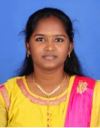
I completed my BCA degree from Vels University. The management provided us the necessary infrastructure and
placement training. The department taught the appropriate information needed for the then industry needs beyond the syllabus and I got selected in Door Sabha Nigam Ltd.,. I thank Vels University and my staffs.
Pelsia (BCA), 2106-2019
Conference operations executive, Door Sabha Nigam Ltd.,
Fee Structure
| Tuition Fee 2024 - 2025 (Per Sem) | Other Fee (Per Sem) | Total Fee 2024 - 2025 (Per Sem) |
|---|---|---|
| 33,000 | 25,000 | 58,000 |
Faculty of the Department
| Sl. No. | Name of the Faculty | Designation | Educational Qualification | Area of Specialization | Experience in Years | Vidwan ID | Photos |
|---|---|---|---|---|---|---|---|
| 1 | Dr.Sujatha.P | Professor and Head | M.Sc.,M.Phil, SET, Ph.D | Image Processing, Machine Learning, Cloud Coomputing & CNN | 25 Years | 233984 | 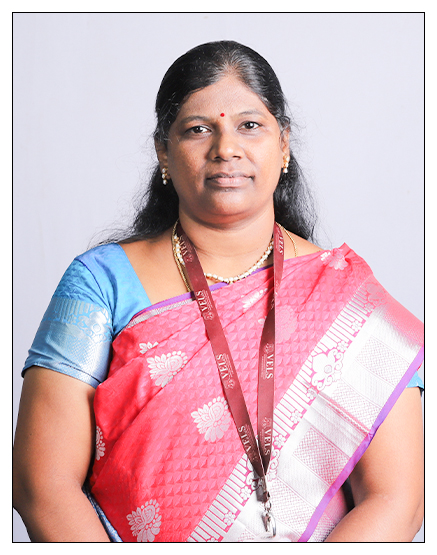 |
| 2 | Dr.Kamalakannan.T | Professor | M.C.A. M.Phil., SET, Ph.D | Data Mining | 25 years 5 months | 250928 | 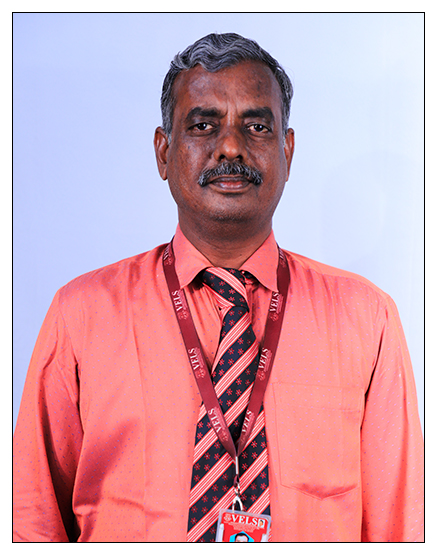 |
| 3 | Dr.Kalpana.Y | Professor | M.C.A, M.Phil., Ph.D | Neural networks, image Processing, cloud computing | 25 years 6 months | 250134 | 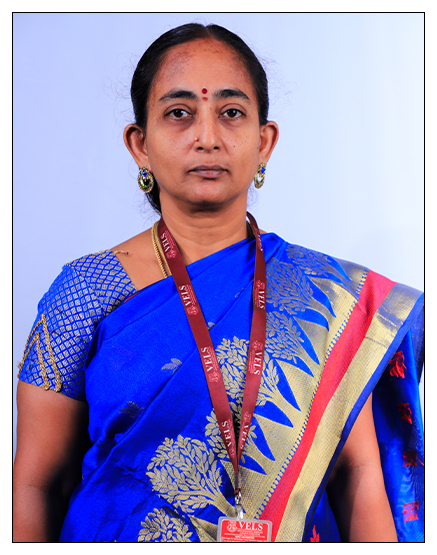 |
| 4 | Dr.Rohini.K | Professor | MCA., M.Phil.,Ph.D | Data Anlytics, Parallel processing system, Networking, Internet of Things & Machine Learning | 17 years 6 months | 290690 | 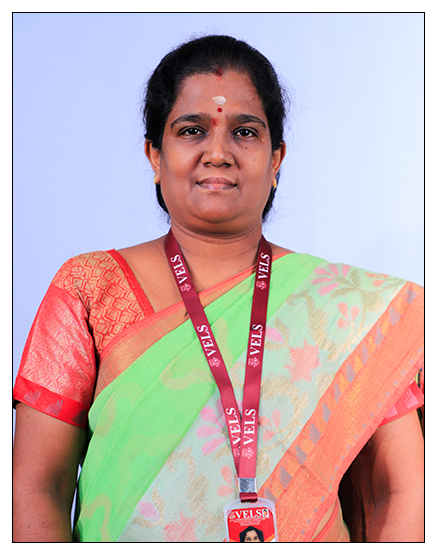 |
| 5 | Dr.Booba.B | Professor | MCA, M.Phil,Ph.D | Grid Computing, Distributed Computing and Parallel Computing, Networking, Video Processing, Big Data Analytics, Cloud Computing, Data Mining, Internet of Things & Machine Learning | 25 years 2 months | 232629 | 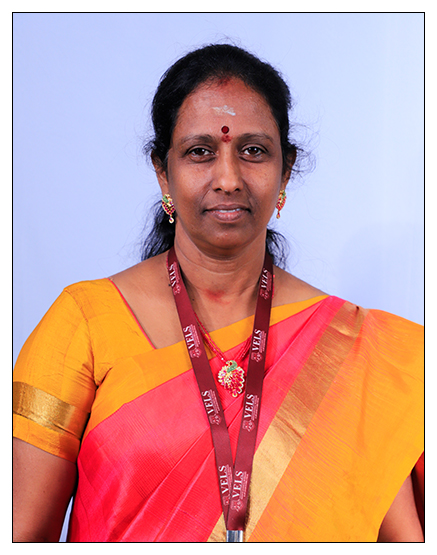 |
| 6 | Dr.Shanthi.C | Associate Professor | M.C.A. M.Phil., Ph.D | Mobile Computing | 18 years 6 months | 233836 | 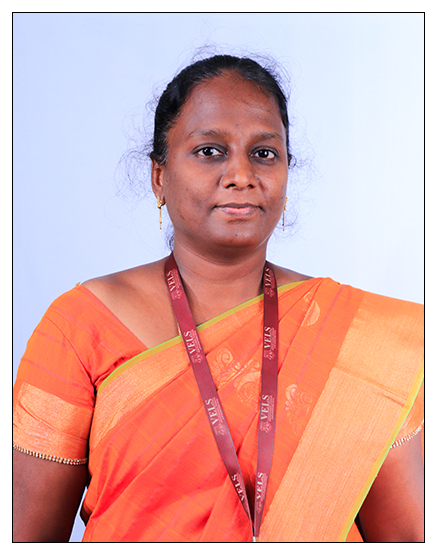 |
| 7 | Dr.Devi Radhakrishnan | Associate Professor | M.C.A, M.Phil., SET, NET., Ph.D | Image Processing , Data Mining & Cloud Computing | 17 years 6 months | 232625 | 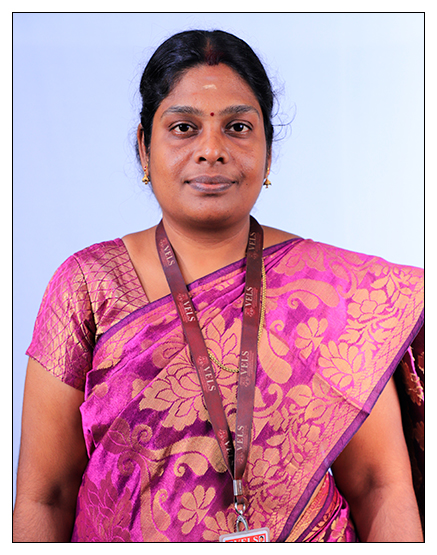 |
| 8 | Dr.Kasturi.K | Associate Professor | M.Sc., MCA.,M.Phil., Ph.D | Data Mining , Big Data Analytics & Machine Learning | 17 years 6 months | 250831 | 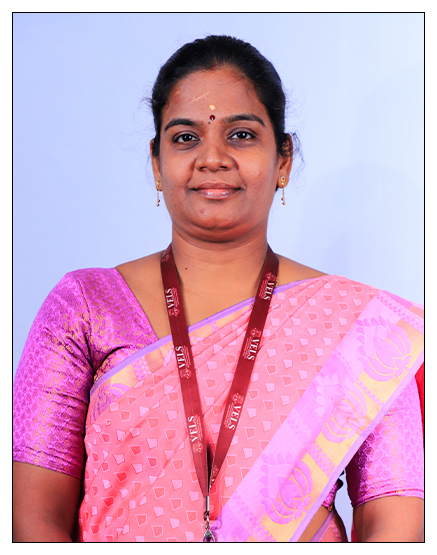 |
| 9 | Dr.Jebathangam.J | Associate Professor | M.C.A, M.Phil., Ph.D | Image Processing & Machine Learning | 16 years3 months | 250023 | 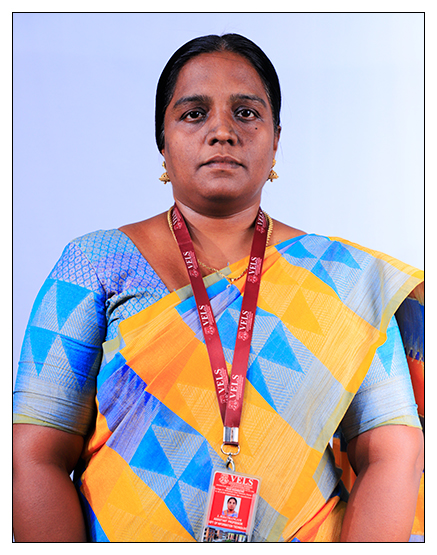 |
| 10 | Dr.Kamalakkannan.S | Associate Professor | M.Sc., M.Phil., Ph.D | Data Mining & Big Data | 19 years 6 months | 232622 | 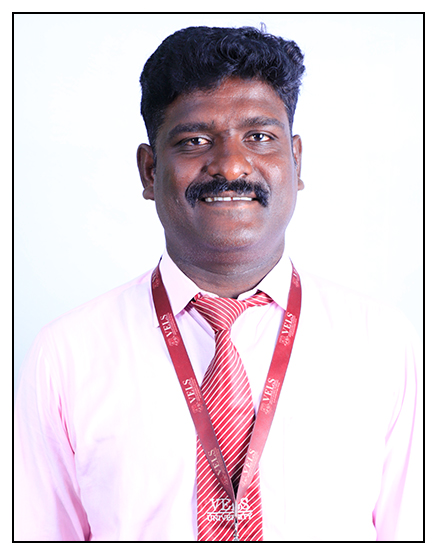 |
| 11 | Dr.Dharmarajan.K | Associate Professor | M.Sc., M.Phil., Ph.D | Data Science ML and AI , Big Data and IoT | 18 years 2 months | 232572 | 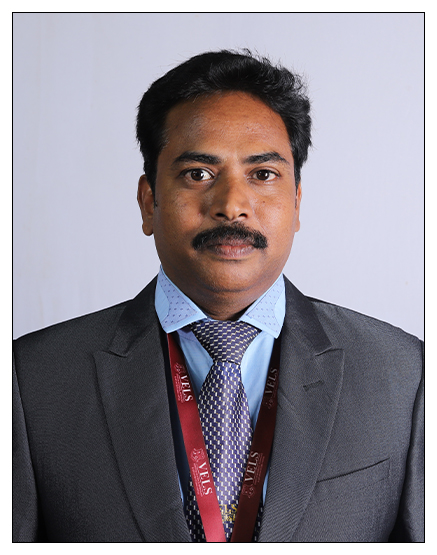 |
| 12 | Dr.Sharmila.K | Associate Professor | M.Sc., M.Phil., Ph.D | Big Data & Machine Learning | 14 years 4 months | 233823 | 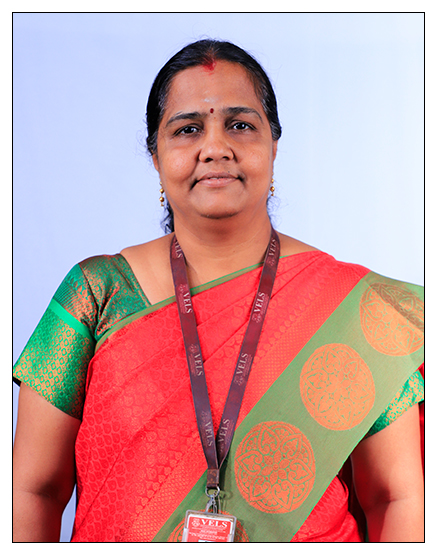 |
| 13 | Dr.Jeyalaksshmi.S | Associate Professor | MCA, M.Phil, Ph.D | Image Processing, Data Mining & Internet of Things | 20 years 2 months | 116757 | 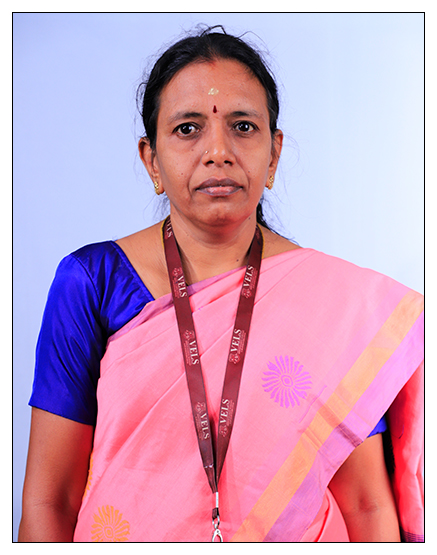 |
| 14 | Dr.Bagavathi Lakshmi.R | Associate Professor | MCA.,M.Phil., Ph.D | Data Mining & Internet of Things | 16 years 2 months | 472626 | - |
| 15 | Dr.Vidhya.A | Assistant Professor | MCA, M.Phil.,Ph.D | Big Data Analytics , Machine Learning & Deep Learning | 19 years 2 months | 250787 | 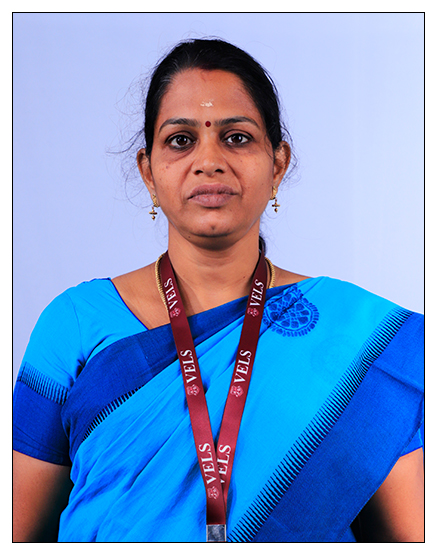 |
| 16 | Dr.Sathya.S | Assistant Professor | M.Sc., M.Phil., Ph.D | ChemInformatics , Data Mining, machine Learning , IoT,Image Processing | 15 years 2 months | 250807 | 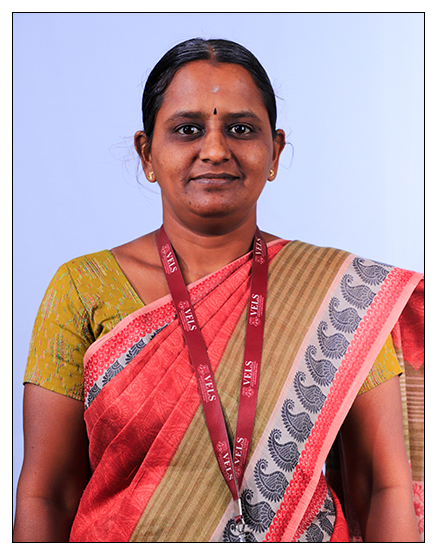 |
| 17 | Dr.Piramu Preethika.SK. | Assistant Professor | MCA, B.Ed.,M.Phil, Ph.D | Mobile Computing,IoT,data analytics, Sentiment analysis, Machine Learning & Cloud Computing | 9 Years 11 Months | 250813 | 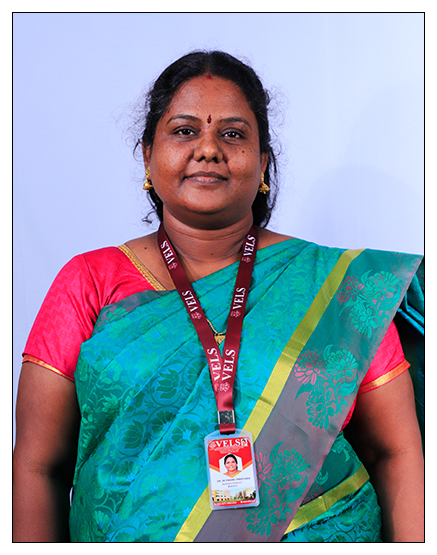 |
| 18 | Ms.Arockiya Selvi.S | Assistant Professor | MCA, M.Phil,(Ph.D) | Data Mining & Big Data | 11 years | 251505 | 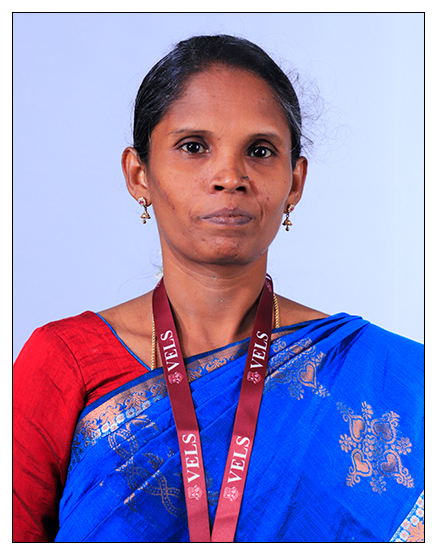 |
| 19 | Dr.Shalini.R | Assistant Professor | M.Sc., M.Phil., Ph.D., | Data mining,Machine Learning | 11 years 06 months | 249935 | 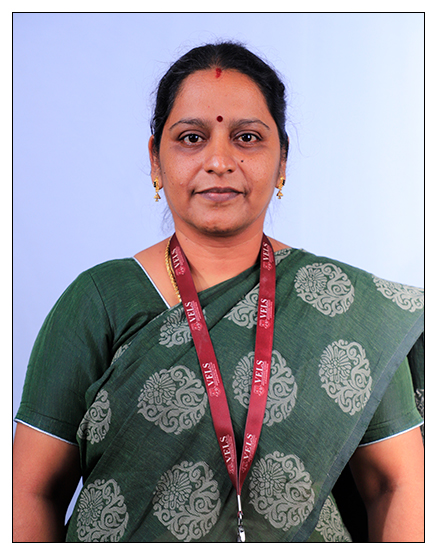 |
| 20 | Dr.Raghavendran.V | Assistant Professor | MCA., MBA.,M.Phil., Ph.D.,PDF | E-commerce Security and AIML& DL, IoT,Big data, Data Mining and Warehousing | 22 years 6 Months | 249741 | 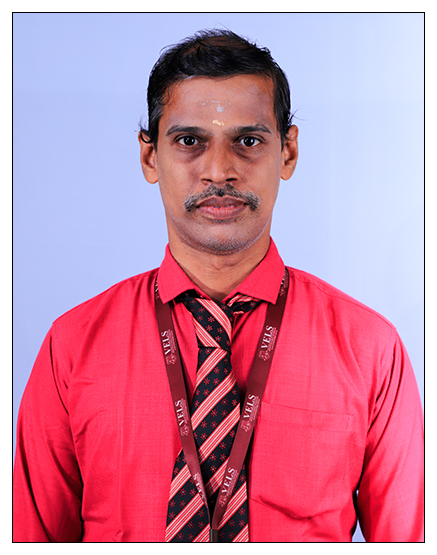 |
| 21 | Dr.Hemamalini.U | Assistant Professor | M.Sc.,M.Phil.,Ph.D | Sentiment Analysis | 17 years 6 months | 315150 | 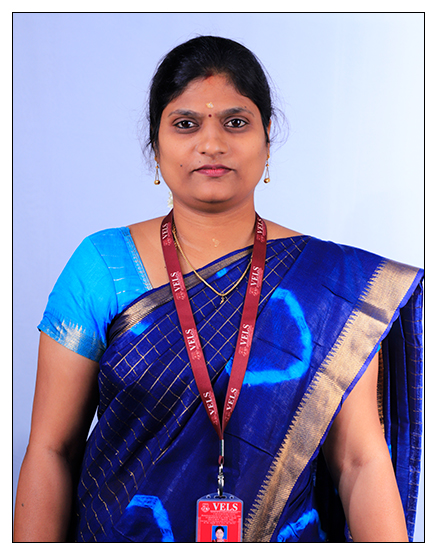 |
| 22 | Dr.Divya.V | Assistant Professor | M.Sc, M.Phil, Ph.D | Networks | 8 years 7 months | 314873 | 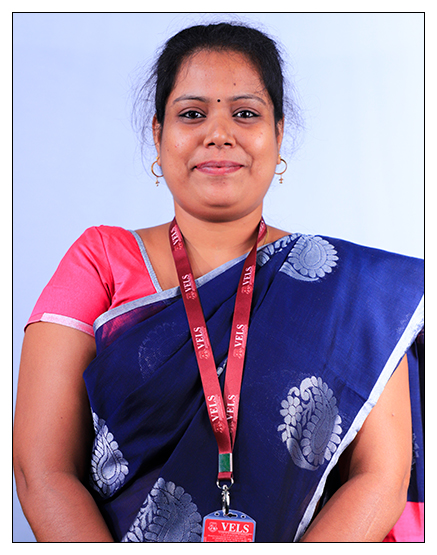 |
| 23 | Dr.Bharathi.A | Assistant Professor | M.Sc,M.Phil, Ph.D | Image Processing, Machine Learning | 7 years 3 months | 315143 | 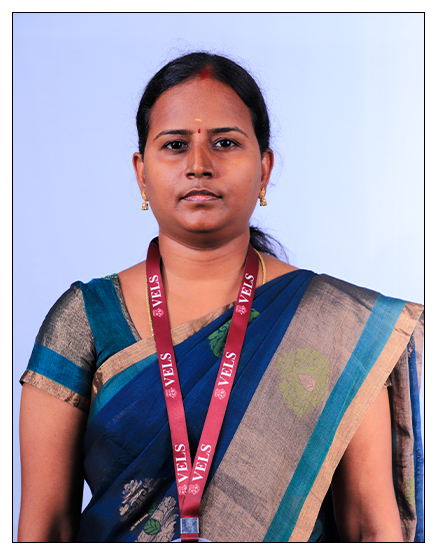 |
| 24 | Dr.Yogeshwari.M | Assistant Professor | M.Sc,M.Phil,Ph.D | Image Processing,Machine Learning | 7 years 2 months | 393508 | 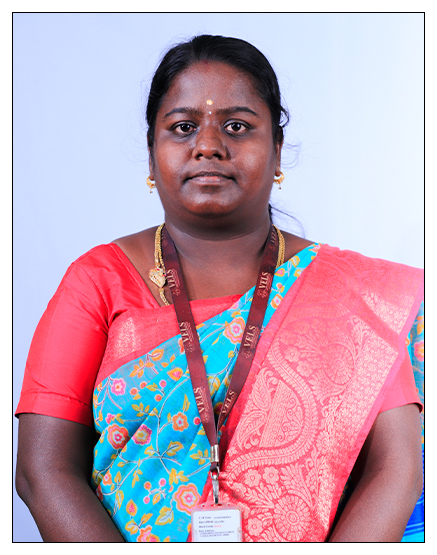 |
| 25 | Dr.Rani.S | Assistant Professor | M.Sc, M.Phil, Ph.D | Image Processing, Cloud Computing | 9 years | 472508 | 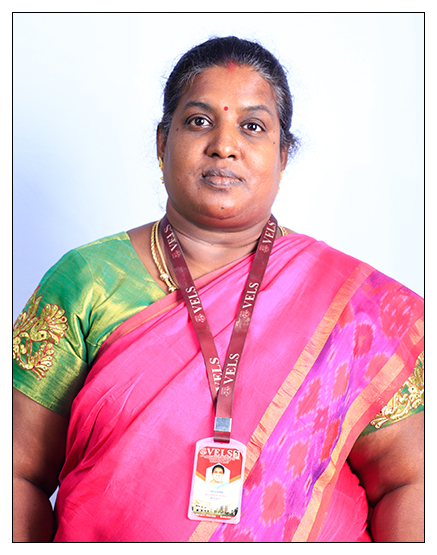 |
| 26 | Dr..Shyamala Devi.N | Assistant Professor | MCA, M.Phil,Ph.D | Natural Language Processing,Text Mining | 13 years | 470942 | 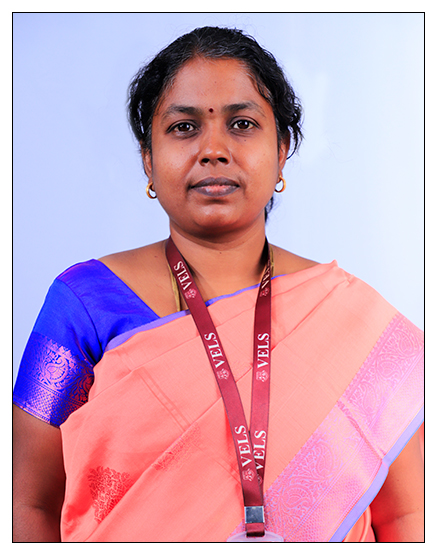 |
| 27 | Dr.Sangeetha Radhakrishnan | Assistant Professor | MCA., Ph.D | Distributed Database,Cryptography,Security | 1 year | 322257 | - |
| 28 | Dr.Ramesh.L | Assistant Professor | M.Sc.,B.Ed.,M.Phil., Ph.D | Data Mining, Image Processing , Big data, Artificial Intelligence,Machine Learning, | 6 years 2 months | 416502 | - |
| 29 | Dr.Sakthivanitha.M | Assistant Professor | M.Sc (CS)., M.Phil., Ph.D., | Data Mining, IoT, Network security | 5 years 6 months | 474749 | - |
| 30 | Dr.Anbarasi.C | Assistant Professor | M.C.A.,M.Phil,Ph.D | Data Mining | 18 years 6 months | 472564 | - |
| 31 | Dr.Grace Hannah.J | Assistant Professor | M.Sc(CS)., M.Phil (CS)., Ph.D (CS) | Image Processing, Data Mining, Machine Learning | 7 years 2 months | 432211 | - |
| 32 | Ms.Jayashree.S | Assistant Professor | M.Sc.,M.Phil | Image processing & Machine learning | 2 years1 month | 472680 | - |
| 33 | Dr.Balaji Kannan | Assistant Professor | MCA., M.Phil. M.E., MBA,DLL.,Ph.D | Cloud Computing, Cloud data security, Network security, IOT, Bigdata. | 13 years | 474352 | - |
BPT
Programme Outcomes
PROGRAM OUTCOME (PO)
PO1: During this BPT degree, one can gain a comprehensive knowledge of physiotherapy, including areas such as Orthopedics, neurology, cardiac & Respiratory conditions, OBG and preventative health care.
PO2: The Bachelor of Physiotherapy incorporates significant clinical and professional training opportunities, providing hands-on experience with real patients in a supervised environment.
PO3: Students will have the ability to effectively work with patients and other Clients with respect to the care of individuals, specific groups, communities or populations
PO4: Students will have the Demonstrated skills that support lifelong learning in personal and professional development
PO5: One can apply a distinct body of knowledge, skills and attitudes, incorporating ethical action, to improve the health and well-being of patients & other Clients.
Curriculum & Syllabus
CURRICULUM & SYLLABUS
| Category | Code | Course | Hours/Week | Cr's | CA | SEE | Total | ||
|---|---|---|---|---|---|---|---|---|---|
| L | T | P | |||||||
| Core | 22CBPT001T | Psychology - Theory | 5 | 0 | 0 | 5 | 40 | 60 | 100 |
| Core | 22CBPT002T | Sociology - Theory | 5 | 0 | 0 | 5 | 40 | 60 | 100 |
| Core | 22CBPT003T | Anatomy – I – Theory | 5 | 0 | 0 | 5 | 40 | 60 | 100 |
| 22CBPT003P | Anatomy – I – Viva | 0 | 0 | 2 | 1 | 40 | 60 | 100 | |
| Core | 22CBPT004T | Physiology – I - Theory | 5 | 0 | 0 | 5 | 40 | 60 | 100 |
| 22CBPT004P | Physiology – I - Viva | 0 | 0 | 2 | 1 | 40 | 60 | 100 | |
| Elective | 22DBPT101 | DSE Elective – I - Theory | 2 | 0 | 0 | 2 | 40 | 60 | 100 |
| Total | 22 | 0 | 4 | 24 |
Eligibility Criteria
| Program | Program Duration (Year) | Eligibility | Criteria for Merit |
|---|---|---|---|
| B.P.T | 4 ½ Years (8 Semesters & 6 Months Internship) | 50% of marks in aggregate in Physics, Chemistry, Biology / Botany & Zoology | Merit based on percentage of marks secured in the qualifying examinations |
Career Prospects
CAREER PROSPECTS
- Lecture
- Clinical researcher
- Private practise
- Physiotherapist in Multinational company as corporate physiotherapist
- Physical fitness Advisor in Gym
- Ergonomic expert in companies which involve manual labour and automated machines
- Consultant Physiotherapist in hospitals, Multi – speciality centre, rehabilitation centre, Special schools,and old age home
- Developmental therapist for special children
- Health care support member in Oncology
- Chief Physiotherapist in Private clinics
Alumni Testimonials

At the very outset I would like to express my heartiest thanks to vels family . I extend my warm regards to my department, school of physiotherapy which as immensely helped me succeed . I am highly indebted to the entire family , in particular our beloved HOD and faculties , for helping me to achieve great heights in carrier. I benefited a lot from faculty members who were always cooperative .It is a place of knowledge and bliss .
Ms.Yagavi Ganesan (BPT), 2015-2020
Clinical Therapist
Fee structure
| Tuition Fee 2024 - 2025 (Per Sem) | Other Fee (Per Sem) | Total Fee 2024 - 2025 (Per Sem) |
|---|---|---|
| 28,000 | 24,000 | 52,000 |
B.E. Mechanical Engineering
Programme Outcomes
PROGRAM OUTCOME (PO)
PEO 1: To impart fundamentals of Engineering and Technology and applied Mathematics to
transform the students as Mechanical Engineers.
PEO 2: To nurture design, analysis and implementation skills to innovate the process or
system in Mechanical Engineering with global context.
PEO 3: To imbibe Mechanical Engineering related technical and aptitude skills to offer best
solution to industrial and societal problems.
PEO 4: To initiate the entrepreneurial activities and leadership qualities of the students
through the effective communication skills.
PEO 5: To develop the awareness among the students about the various social
responsibilities related to Engineering ethics and human values with ecological
Curriculum & Syllabus
CURRICULUM & SYLLABUS
MINIMUM CREDITS TO BE EARNED: 190
| Hour / Week | Maximum Marks | ||||||||
|---|---|---|---|---|---|---|---|---|---|
| Category | Code | Title of the Course | Lecture | Tutorial | Practical | Credits | CA | SEE | Total |
| SEMESTER – I | |||||||||
| CC | 21EMR001 | Mathematics – I | 3 | 0 | 0 | 2 | 40 | 60 | 100 |
| CC | 21EMR002 | Electrical Engineering Basics | 2 | 0 | 0 | 3 | 40 | 60 | 100 |
| CC | 21EMR003 | Engineering Drawing | 3 | 0 | 0 | 3 | 40 | 60 | 100 |
| AECC | 21EMR201 | Technical English | 3 | 0 | 0 | 2 | 40 | 60 | 100 |
| AECC | 21EMR202 | Workshop Technology | 3 | 0 | 0 | 2 | 40 | 60 | 100 |
| AECC | 21EMR203 | Engineering Mechanics | 4 | 0 | 0 | 3 | 40 | 60 | 100 |
| AECC | 21EMR204 | Applied Mechanics Lab | 0 | 0 | 2 | 1 | 40 | 60 | 100 |
| DSE | 21EMR101 | Electrical Engineering Basic Lab | 0 | 0 | 3 | 2 | 40 | 60 | 100 |
| SEC | 21EMR251 | Computer Science | 1 | 0 | 0 | 1 | 40 | 60 | 100 |
| SEC | 21EMR252 | Basic Workshop 1 | 0 | 0 | 6 | 6 | 40 | 60 | 100 |
| TOTAL | 19 | 0 | 11 | 24 |
Eligibility Criteria
| Program | Eligibility | Criteria for Merit |
|---|---|---|
| B.E. Mechanical Engineering | The candidate who passess the degree in Science (B.Sc (10+2+3 stream with Mathematics as a subject at the B.Sc Level are eligible to apply for Lateral Entry admission to the third semester of B.E., / B.Tech.s Such candidate shall undergo two additional Engineering subjects(s) in the third and fourth semesters as prescribed by the University | Merit Based on Vels Entrance Examination Score and Merit Based on Percentage of marks secured in the qualifying examination. |
Career Prospects
CAREER PROSPECTS
- Quality controller
- Medical Scientist
- Clinical Technician
- Microbiologist
- Process Development Scientist
- Biopharma Sales Representative
- Biotechnological Technician
- Epidemiologist
- Microbiologist
- Medical and Clinical Lab Technologist
- Biomanufacturing Specialist
- Bioproduction Specialist
- Medical Coder
- Environmental Technician
Alumni Testimonials

Department of Biotechnology, VISTAS provides state-of-the-art infrastructure and facilities. The professors are highly qualified, knowledgeable, and friendly. The course curriculum is relevant and offers site visits. Most importantly, the annual events organized by the college are awesome and witness huge crowds. The university conducts various extracurricular activities throughout the year. I thoroughly enjoyed my student life while pursuing my Bachelors program at VISTAS (Deemed-to-be University).
Ms. Dr. M.Srimathi (B.Sc. Biotechnology), 2016-2019
Junior Microbiologist @ Eupro Biotech private Limited, Chennai
Fee Structure
| Tuition Fee 2024 - 2025 (Per Sem) | Other Fee (Per Sem) | Total Fee 2024 - 2025 (Per Sem) |
|---|---|---|
| 32,000 | 28,000 | 60,000 |
Certificate course in Front Office Operation
Course Outcomes
Course Outcomes
CO1:Handle front office equipment.
CO2: Manage the guest during check in and check out.
CO3: Register and reserve guest at hotel front office.
CO4: Operate property management systems.
CO5: Implement hotel safety and security procedures.
CO6: Maintain quality guest service.
Curriculum & Syllabus
CURRICULUM & SYLLABUS
| Theory | Practical |
|---|---|
| Front Office Operations (Theory) | Front Office Operations (Practical) |
Eligibility Criteria
[table “” not found /]
Career Prospects
CAREER PROSPECTS
- Front office assistants in Hotels.
- Supervisors in residential apartments.
- Hospital administration
- Receptionists in various MNCs.
- Reservation and reception services at Forest Lodges, Guest Houses, and resorts.
- Self-employment (as an entrepreneur)
Alumni Testimonials

I had joined the VELS School of Hotel & Catering Management in 2020-2021 and did a one year certificate course in Front Office. Lecturers who taught me were outstanding and very helpful during my tenure there. With the training I received I was able to get a good job in my home town.
Mr.Shashank (Certificate course in Front Office), 2020-2021
Customer relations Manager, Ramesh hospital, Vijayawada
Fee Structure
| Tuition Fee per year | Administration Fee | Registration Fee | Misc. (per sem) | Skill Enhancement Fee (per year) | Exam Fee (Per Sem) | At the time of admission | Even Sem | Odd Sem |
|---|---|---|---|---|---|---|---|---|
| 20,000 | 4,650 | 2,650 | 300 | 1500 | 19,100 | 10,300 | 11,800 |
School of Ancient Indian Stuides
Programme Outcomes
Curriculum & Syllabus
Eligibility Criteria
Career Prospects
Alumni Testimonials
Fee Structure
| Tuition Fee 2023 - 2024 (Per Sem) | Other Fee (Per Sem) | Total Fee (Per Sem) |
|---|---|---|
| 5,000 | 2,600 | 7,600 |
Programme Outcomes
Curriculum & Syllabus
Eligibility Criteria
Career Prospects
Alumni Testimonials
Fee Structure
[table “145” not found /]
Programme Outcomes
Curriculum & Syllabus
Eligibility Criteria
| Program | Program Duration (Year) | Eligibility | Criteria for Merit |
|---|---|---|---|
| M.A Astrology | 2 Years (4 Semesters) | Pass in UG with Specialization in Astrology. | Merit based on the percentage of marks secured in the qualifying examination |
Career Prospects
Alumni Testimonials
Fee Structure
| Tuition Fee 2023 - 2024 (Per Sem) | Other Fee (Per Sem) | Total Fee (Per Sem) |
|---|---|---|
| 13,000 | 6,000 | 19,000 |
Programme Outcomes
Curriculum & Syllabus
Eligibility Criteria
Career Prospects
Alumni Testimonials
Fee Structure
| Tuition Fee 2023 - 2024 (Per Sem) | Other Fee (Per Sem) | Total Fee (Per Sem) |
|---|---|---|
| 7,500 | 7,000 | 14,500 |
Programme Outcomes
Curriculum & Syllabus
Eligibility Criteria
Career Prospects
Alumni Testimonials
Fee Structure
| Tuition Fee 2023 - 2024 (Per Sem) | Other Fee (Per Sem) | Total Fee (Per Sem) |
|---|---|---|
| 3,750 | 3,600 | 7,350 |
Programme Outcomes
Curriculum & Syllabus
Eligibility Criteria
Career Prospects
Alumni Testimonials
Fee Structure
| Tuition Fee 2023 - 2024 (Per Sem) | Other Fee (Per Sem) | Total Fee (Per Sem) |
|---|---|---|
| 6,000 | 4,000 | 10,000 |
Programme Outcomes
Curriculum & Syllabus
Programme Outcomes
Eligibility Criteria
Career Prospects
Alumni Testimonials
Fee Structure
| Tuition Fee 2023 - 2024 (Per Sem) | Other Fee (Per Sem) | Total Fee (Per Sem) |
|---|---|---|
| 2,500 | 3,600 | 6,100 |
Curriculum & Syllabus
Eligibility Criteria
Career Prospects
Alumni Testimonials
Fee Structure
| Tuition Fee per year | Other Fee (Per Sem) | Total Fee (Per Sem) |
|---|---|---|
| 3,750 | 5,000 | 8,750 |
Programme Outcomes
Curriculum & Syllabus
Eligibility Criteria
| Program | Program Duration (Year) | Eligibility | Criteria for Merit |
|---|---|---|---|
| PG Diploma in Yoga Therapy - 1 Year | 1 Year (2 Semesters) | Pass in (10+2) & any degree or any equivalent examination. | Merit based on the percentage of marks secured in the qualifying examination |
Career Prospects
Alumni Testimonials
Fee Structure
| Tuition Fee 2023 - 2024 (Per Sem) | Other Fee (Per Sem) | Total Fee (Per Sem) |
|---|---|---|
| 6,000 | 4,000 | 10,000 |
Program Outcomes
Eligibility Criteria
Career Prospects
Fees Structure
| Tuition Fee 2023 - 2024 (Per Sem) | Other Fee (Per Sem) | Total Fee (Per Sem) |
|---|---|---|
| 6,000 | 4,000 | 10,000 |
Curriculum & Syllabus
Fee Structure
M.A. Astrology
Programme Outcomes
Curriculum & Syllabus
Eligibility Criteria
| Program | Program Duration (Year) | Eligibility | Criteria for Merit |
|---|---|---|---|
| M.A Astrology | 2 Years (4 Semesters) | Pass in UG with Specialization in Astrology. | Merit based on the percentage of marks secured in the qualifying examination |
Career Prospects
Alumni Testimonials
Fee Structure
| Tuition Fee 2023 - 2024 (Per Sem) | Other Fee (Per Sem) | Total Fee (Per Sem) |
|---|---|---|
| 13,000 | 6,000 | 19,000 |
M.Sc. Yoga
Programme Outcomes
Curriculum & Syllabus
Eligibility Criteria
Career Prospects
Alumni Testimonials
Fee Structure
| Tuition Fee 2023 - 2024 (Per Sem) | Other Fee (Per Sem) | Total Fee (Per Sem) |
|---|---|---|
| 7,500 | 7,000 | 14,500 |
PG Diploma in Yoga
Programme Outcomes
Curriculum & Syllabus
Eligibility Criteria
Career Prospects
Alumni Testimonials
Fee Structure
| Tuition Fee 2023 - 2024 (Per Sem) | Other Fee (Per Sem) | Total Fee (Per Sem) |
|---|---|---|
| 3,750 | 3,600 | 7,350 |
Diploma in Yoga
Programme Outcomes
Curriculum & Syllabus
Eligibility Criteria
Career Prospects
Alumni Testimonials
Fee Structure
| Tuition Fee 2023 - 2024 (Per Sem) | Other Fee (Per Sem) | Total Fee (Per Sem) |
|---|---|---|
| 6,000 | 4,000 | 10,000 |
Certificate Course in Yoga
Programme Outcomes
Curriculum & Syllabus
Eligibility Criteria
Career Prospects
Alumni Testimonials
Fee Structure
| Tuition Fee 2023 - 2024 (Per Sem) | Other Fee (Per Sem) | Total Fee (Per Sem) |
|---|---|---|
| 2,500 | 3,600 | 6,100 |
Certificate Course in Astrology
Programme Outcomes
Curriculum & Syllabus
Eligibility Criteria
Career Prospects
Alumni Testimonials
Fee Structure
| Tuition Fee per year | Other Fee (Per Sem) | Total Fee (Per Sem) |
|---|---|---|
| 3,750 | 5,000 | 8,750 |
Dilopma in yoga Therapy - 1 Year
Program Outcomes
Curriculum & Syllabus
Eligibility Criteria
Career Prospects
Fees Structure
| Tuition Fee 2023 - 2024 (Per Sem) | Other Fee (Per Sem) | Total Fee (Per Sem) |
|---|---|---|
| 6,000 | 4,000 | 10,000 |
PG Diploma in Yoga Therapy
Programme Outcomes
Curriculum & Syllabus
Eligibility Criteria
| Program | Program Duration (Year) | Eligibility | Criteria for Merit |
|---|---|---|---|
| PG Diploma in Yoga Therapy - 1 Year | 1 Year (2 Semesters) | Pass in (10+2) & any degree or any equivalent examination. | Merit based on the percentage of marks secured in the qualifying examination |
Career Prospects
Alumni Testimonials
Fee Structure
| Tuition Fee 2023 - 2024 (Per Sem) | Other Fee (Per Sem) | Total Fee (Per Sem) |
|---|---|---|
| 6,000 | 4,000 | 10,000 |
M.Sc. Yoga
Programme Outcomes
Curriculum & Syllabus
Eligibility Criteria
Career Prospects
Alumni Testimonials
Fee Structure
| Tuition Fee 2023 - 2024 (Per Sem) | Other Fee (Per Sem) | Total Fee (Per Sem) |
|---|---|---|
| 7,500 | 7,000 | 14,500 |
PG Diploma in Yoga
Programme Outcomes
Curriculum & Syllabus
Eligibility Criteria
Career Prospects
Alumni Testimonials
Fee Structure
| Tuition Fee 2023 - 2024 (Per Sem) | Other Fee (Per Sem) | Total Fee (Per Sem) |
|---|---|---|
| 3,750 | 3,600 | 7,350 |
Diploma in Yoga
Programme Outcomes
Curriculum & Syllabus
Eligibility Criteria
Career Prospects
Alumni Testimonials
Fee Structure
| Tuition Fee 2023 - 2024 (Per Sem) | Other Fee (Per Sem) | Total Fee (Per Sem) |
|---|---|---|
| 6,000 | 4,000 | 10,000 |
Certificate Course in Yoga
Programme Outcomes
Curriculum & Syllabus
Eligibility Criteria
Career Prospects
Alumni Testimonials
Fee Structure
| Tuition Fee 2023 - 2024 (Per Sem) | Other Fee (Per Sem) | Total Fee (Per Sem) |
|---|---|---|
| 2,500 | 3,600 | 6,100 |
Certificate Course in Astrology
Programme Outcomes
Curriculum & Syllabus
Eligibility Criteria
Career Prospects
Alumni Testimonials
Fee Structure
| Tuition Fee per year | Other Fee (Per Sem) | Total Fee (Per Sem) |
|---|---|---|
| 3,750 | 5,000 | 8,750 |
Dilopma in yoga Therapy - 1 Year
Program Outcomes
Curriculum & Syllabus
Eligibility Criteria
Career Prospects
Fees Structure
| Tuition Fee 2023 - 2024 (Per Sem) | Other Fee (Per Sem) | Total Fee (Per Sem) |
|---|---|---|
| 6,000 | 4,000 | 10,000 |
PG Diploma in Yoga Therapy
Programme Outcomes
Curriculum & Syllabus
Eligibility Criteria
| Program | Program Duration (Year) | Eligibility | Criteria for Merit |
|---|---|---|---|
| PG Diploma in Yoga Therapy - 1 Year | 1 Year (2 Semesters) | Pass in (10+2) & any degree or any equivalent examination. | Merit based on the percentage of marks secured in the qualifying examination |
Career Prospects
Alumni Testimonials
Fee Structure
| Tuition Fee 2023 - 2024 (Per Sem) | Other Fee (Per Sem) | Total Fee (Per Sem) |
|---|---|---|
| 6,000 | 4,000 | 10,000 |
 CHAT WITH A STUDENT
CHAT WITH A STUDENT